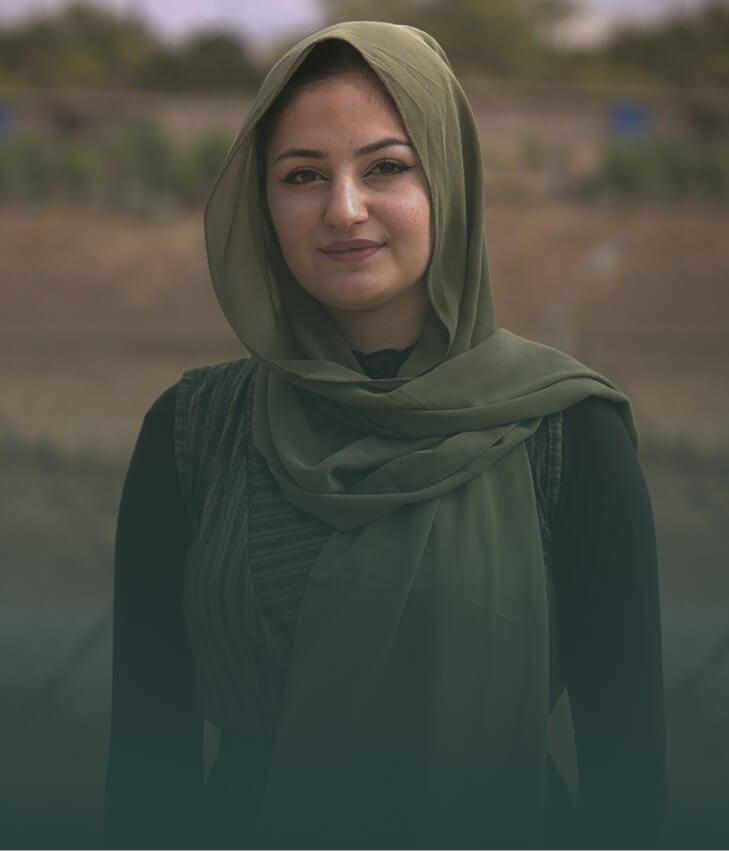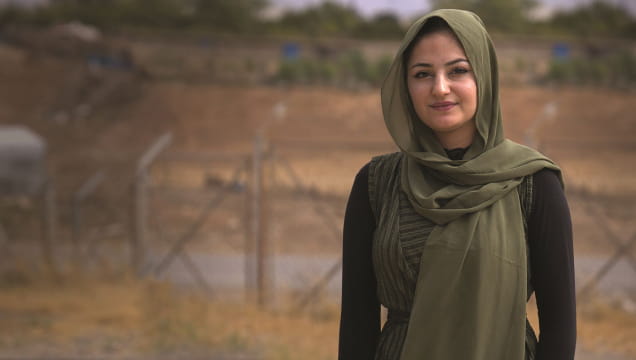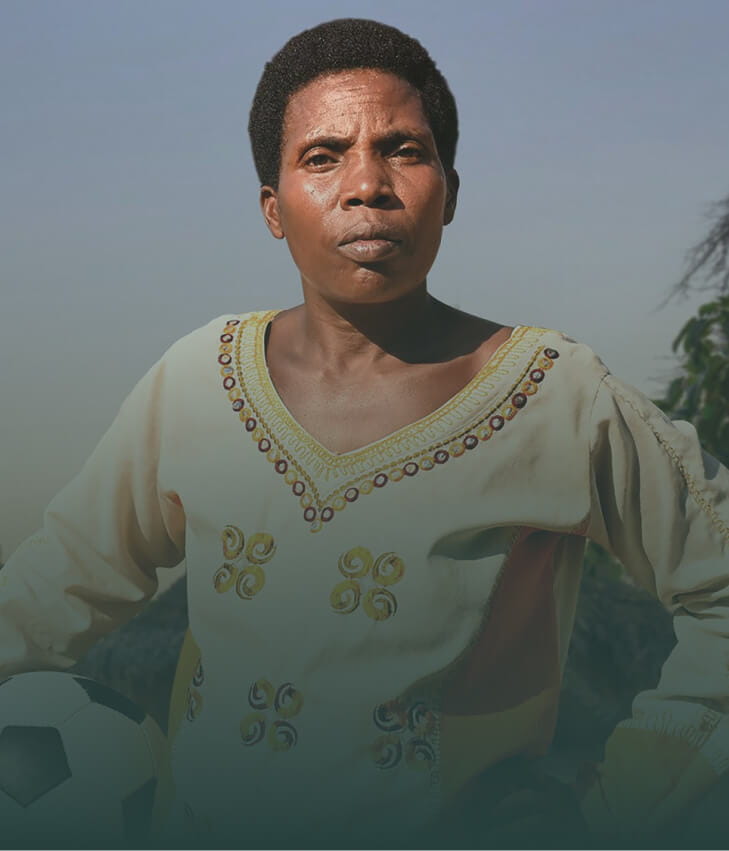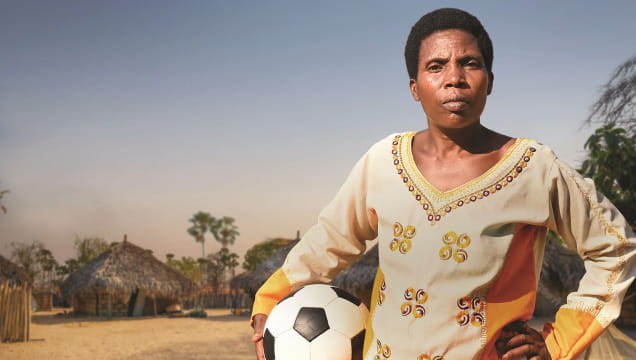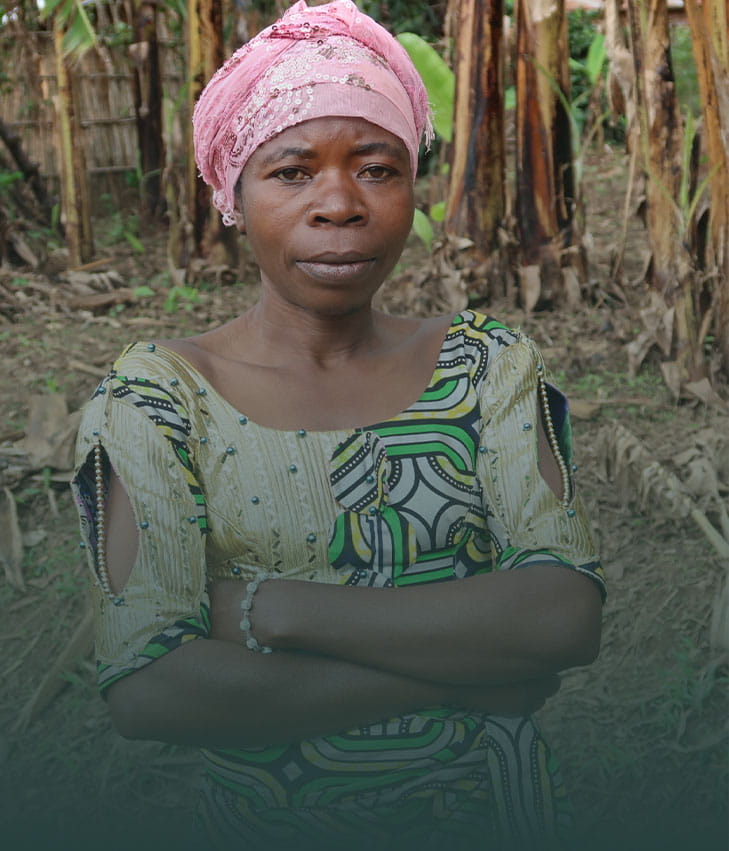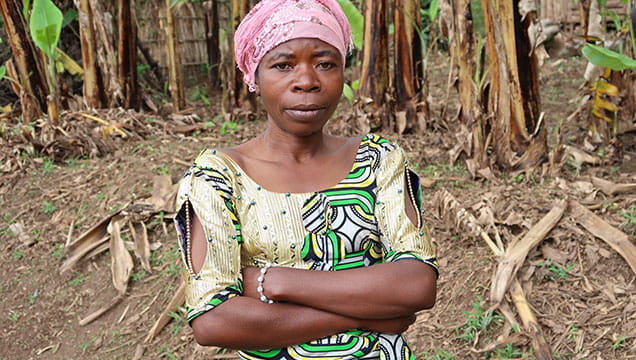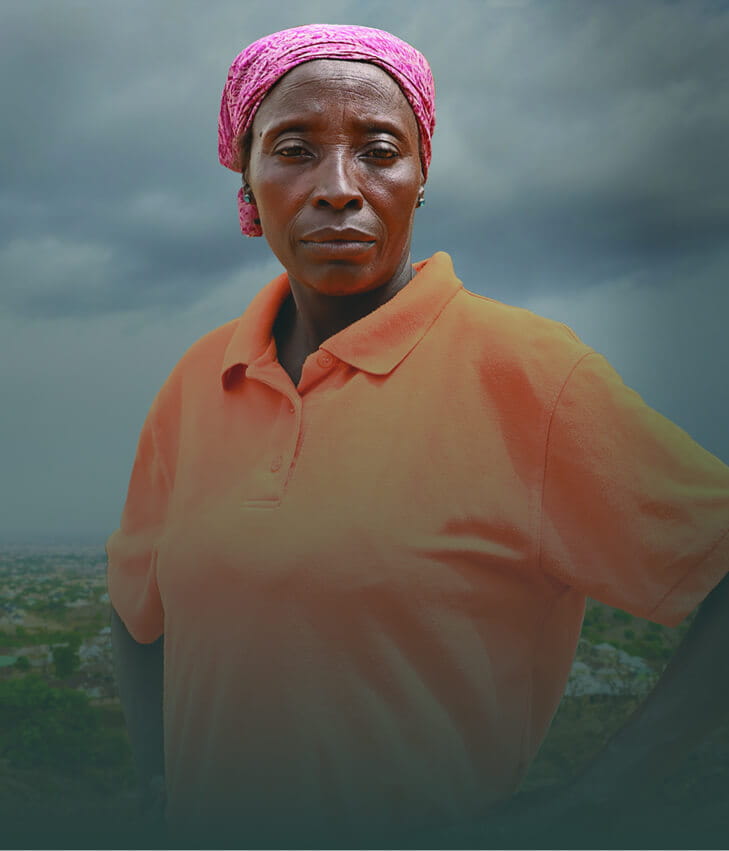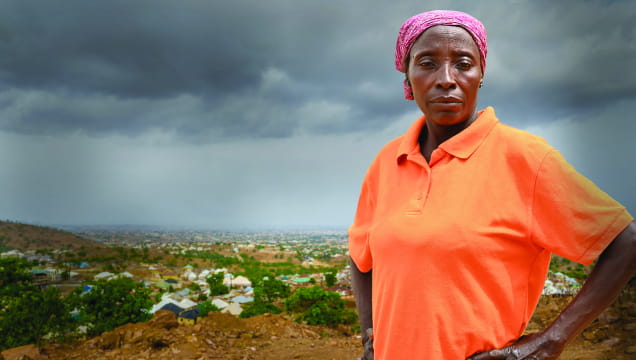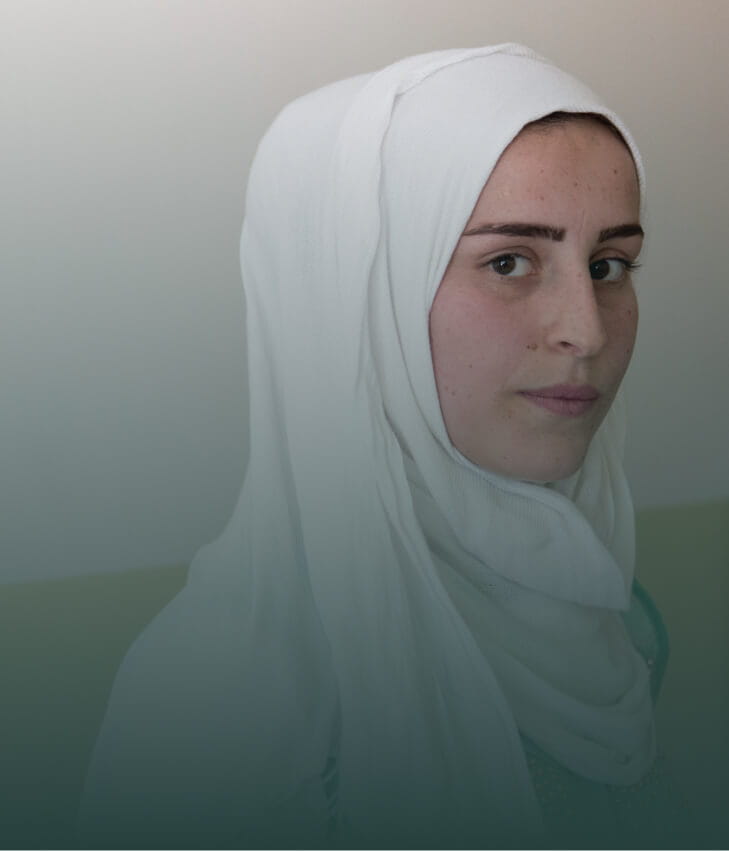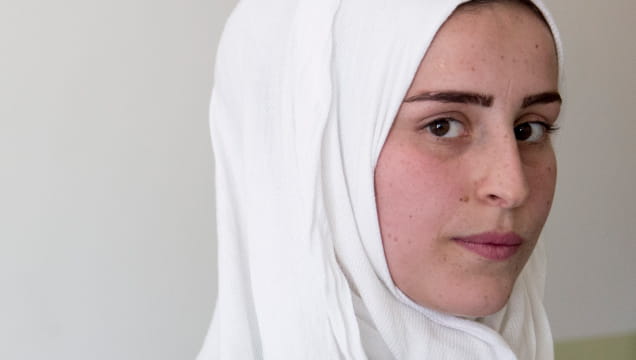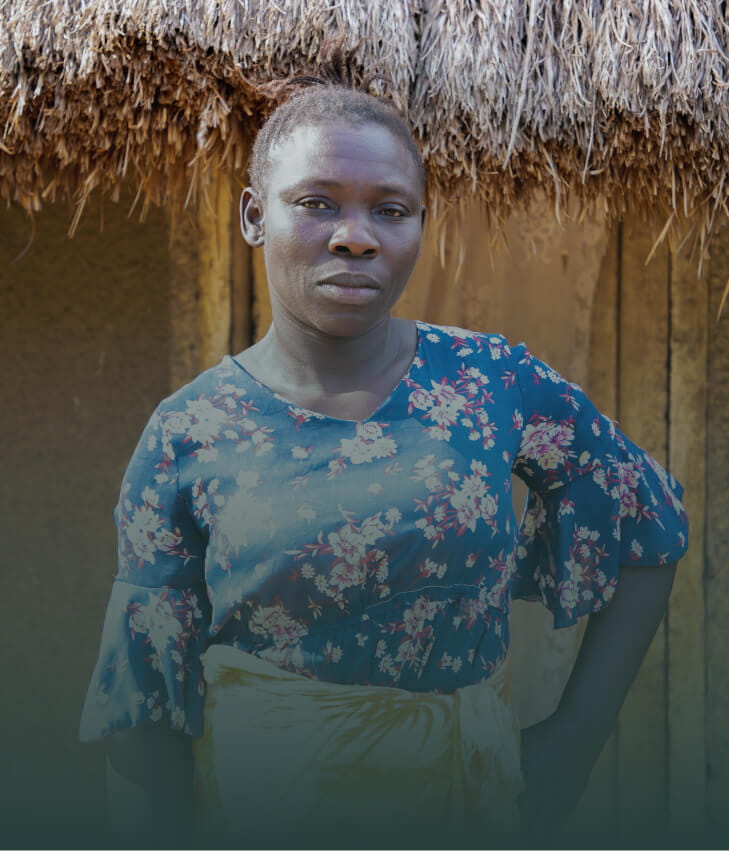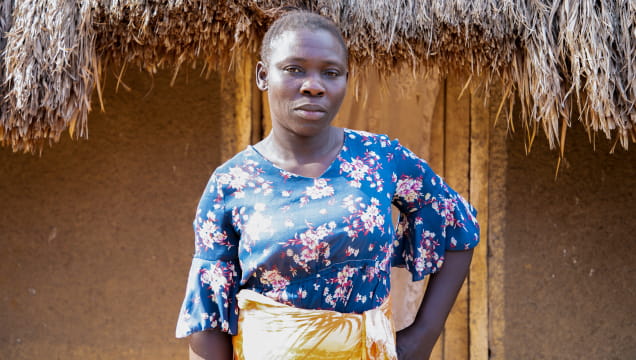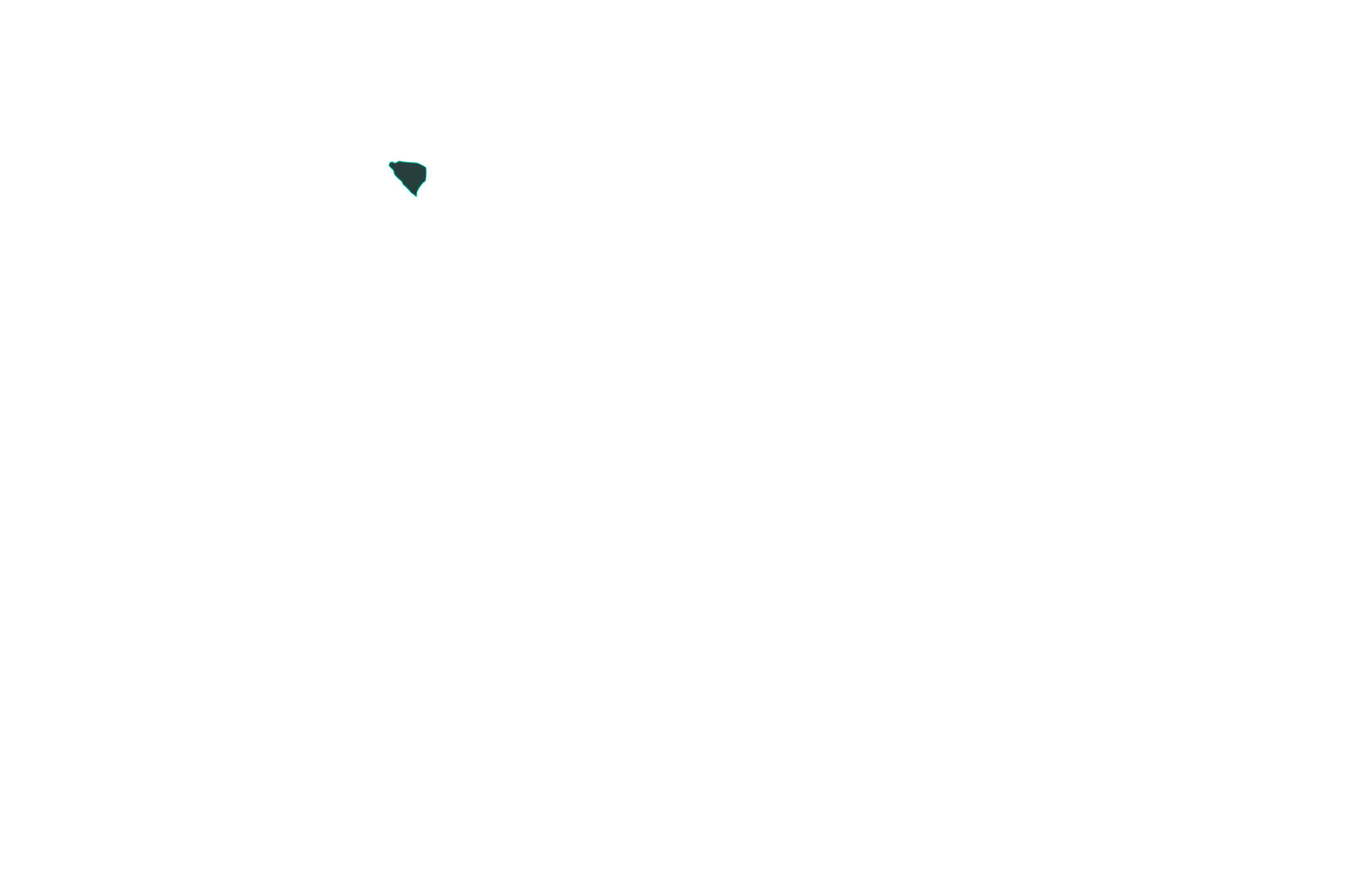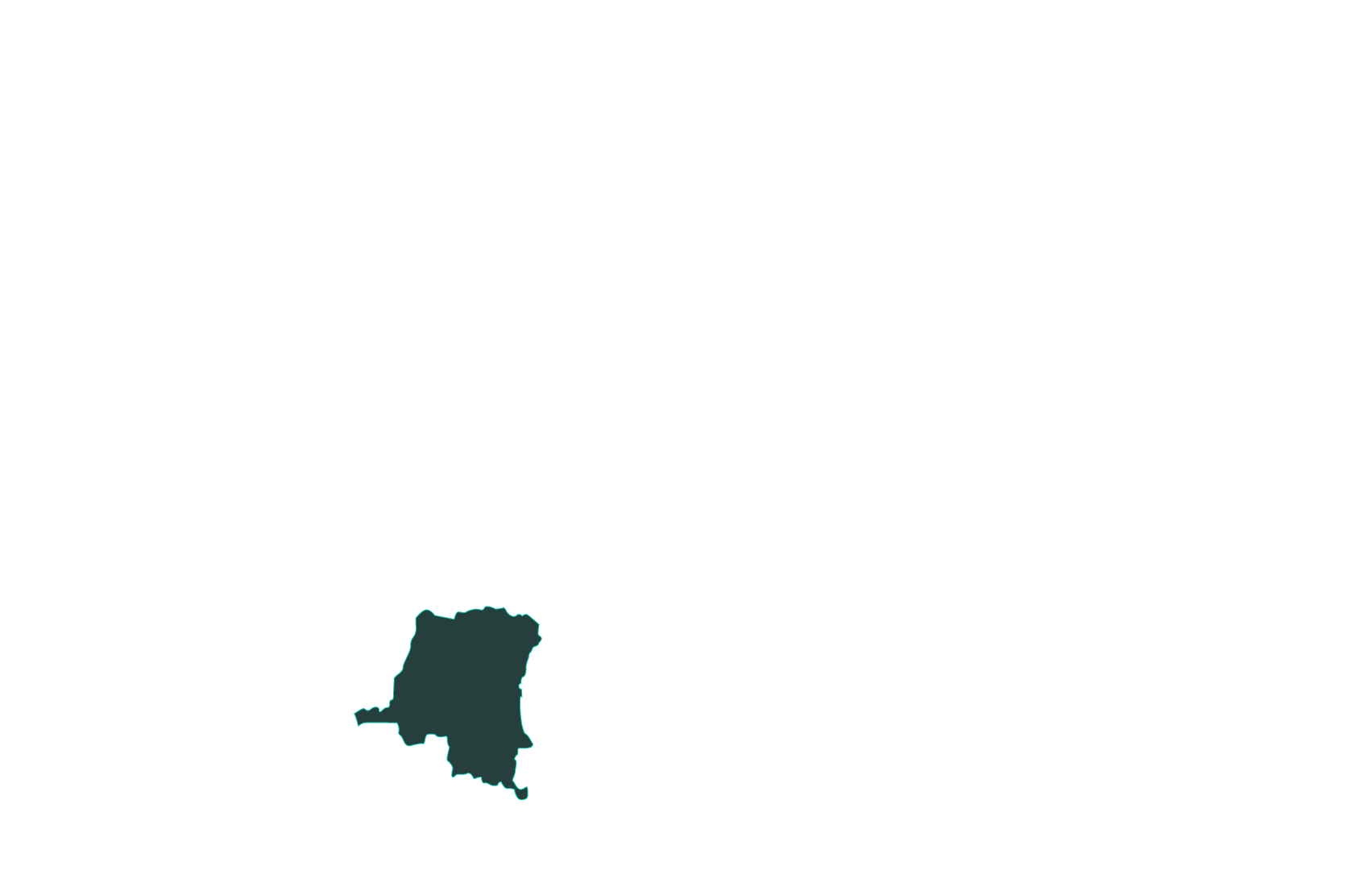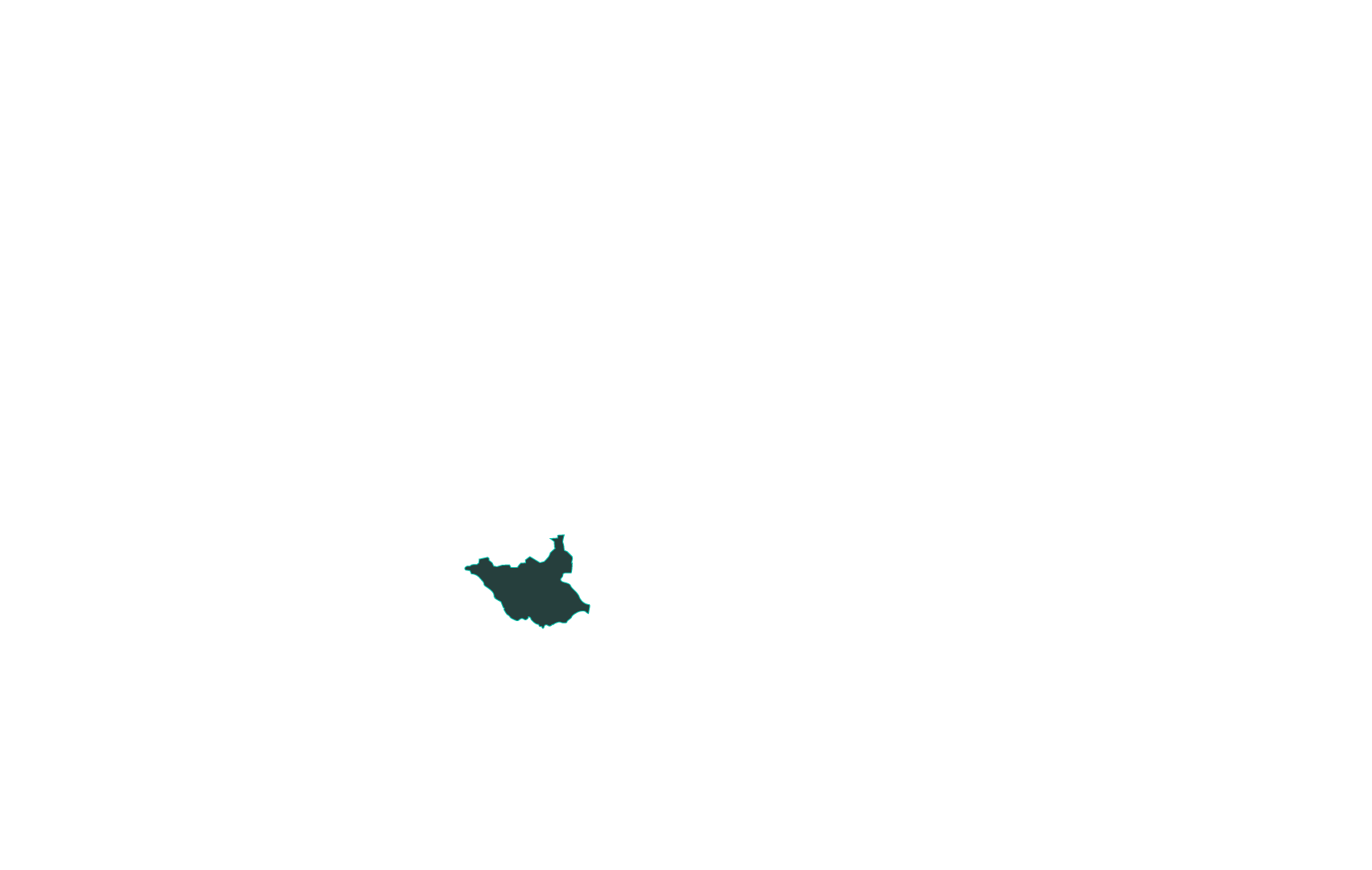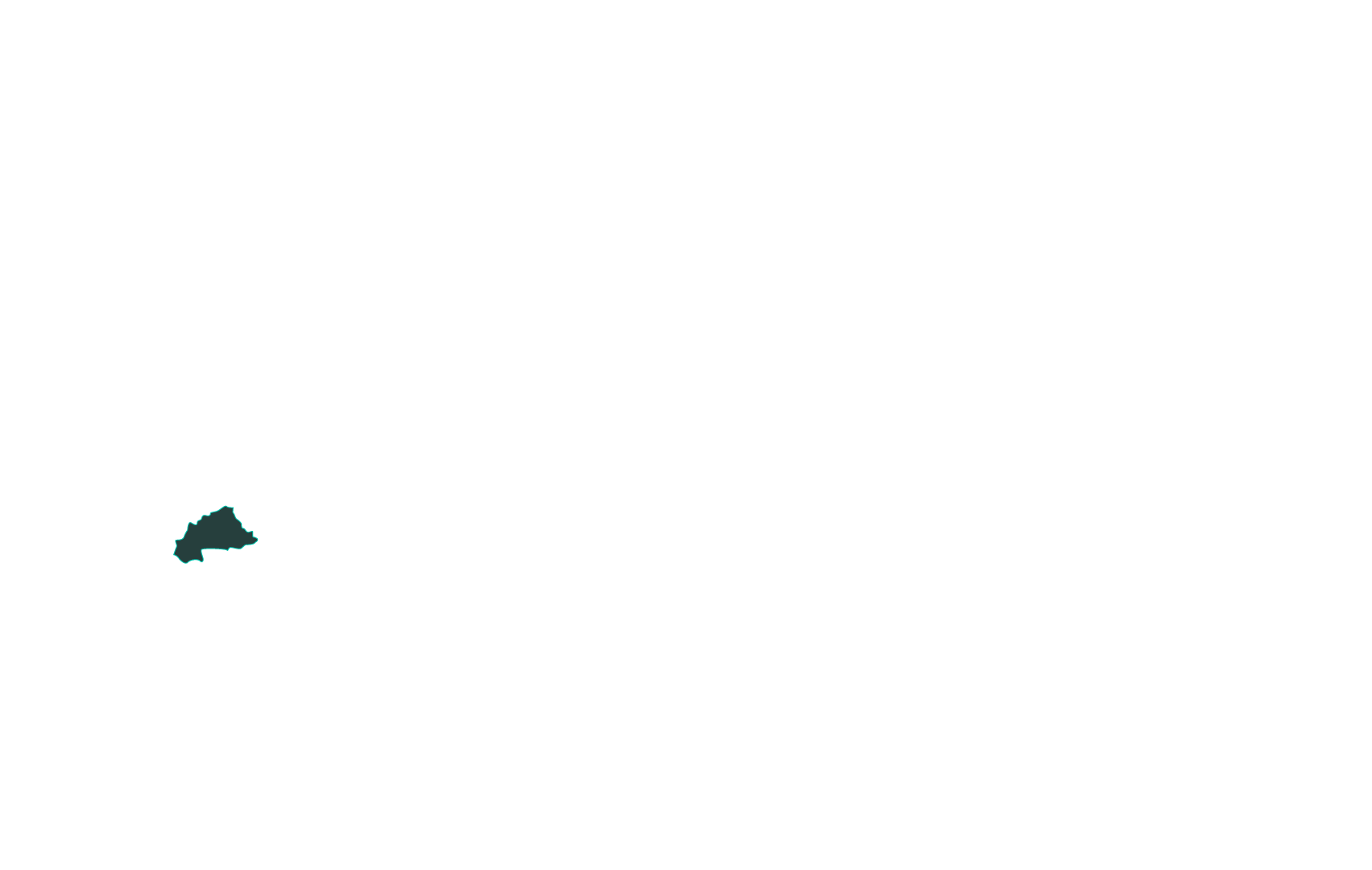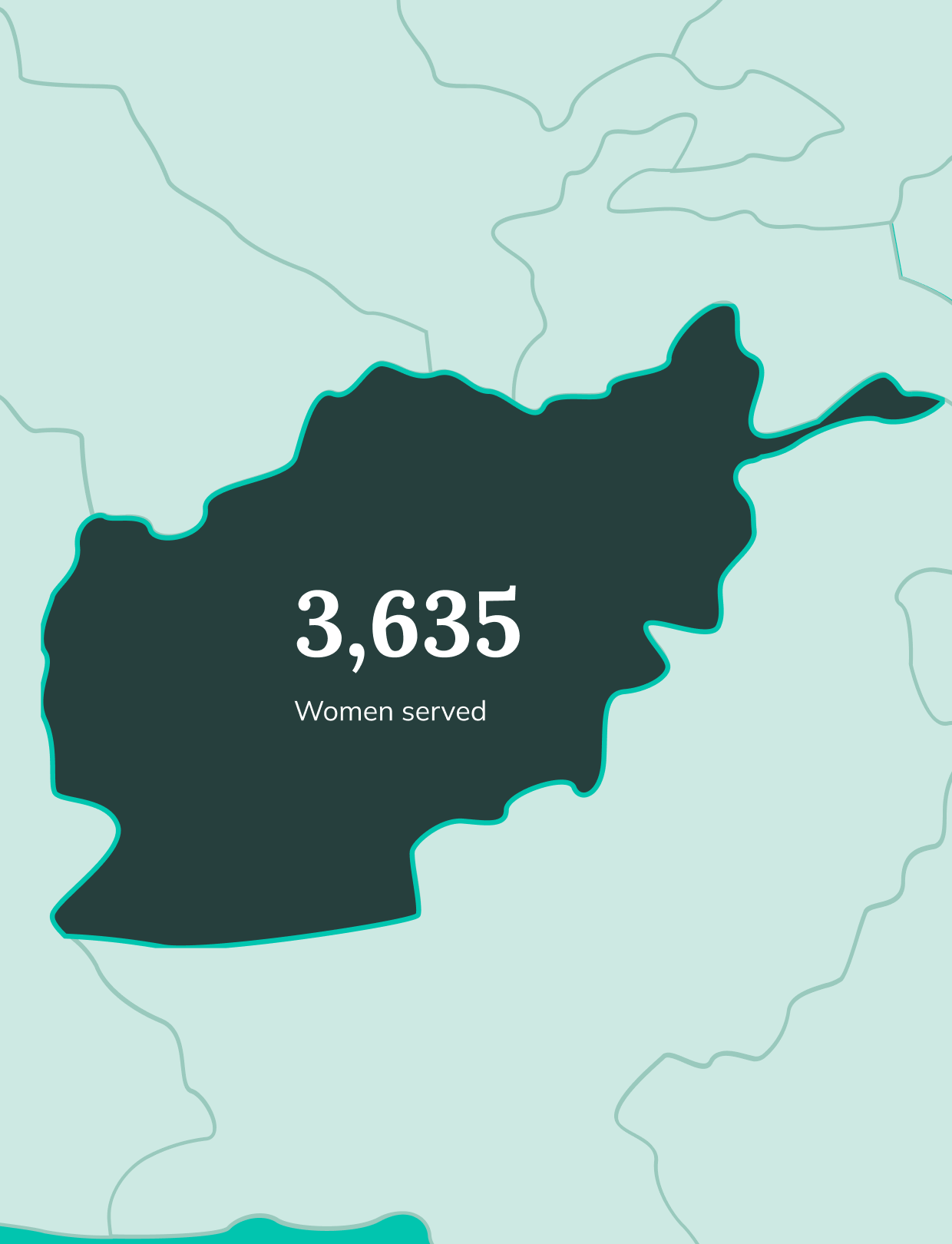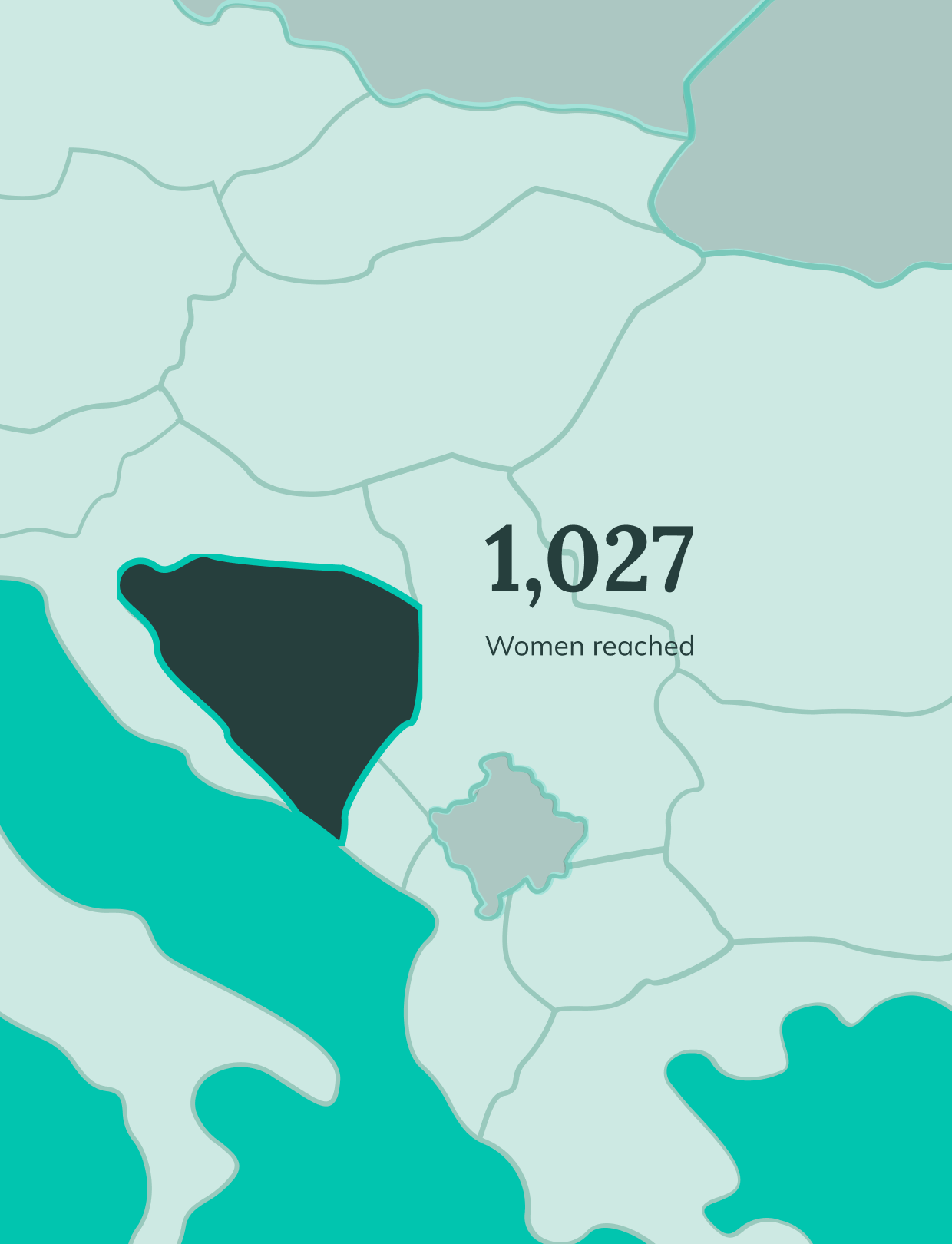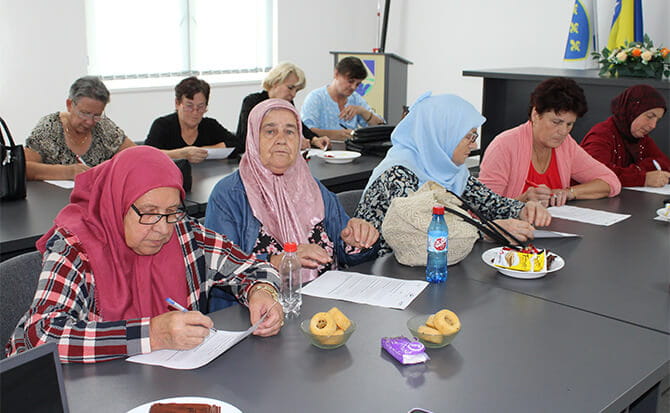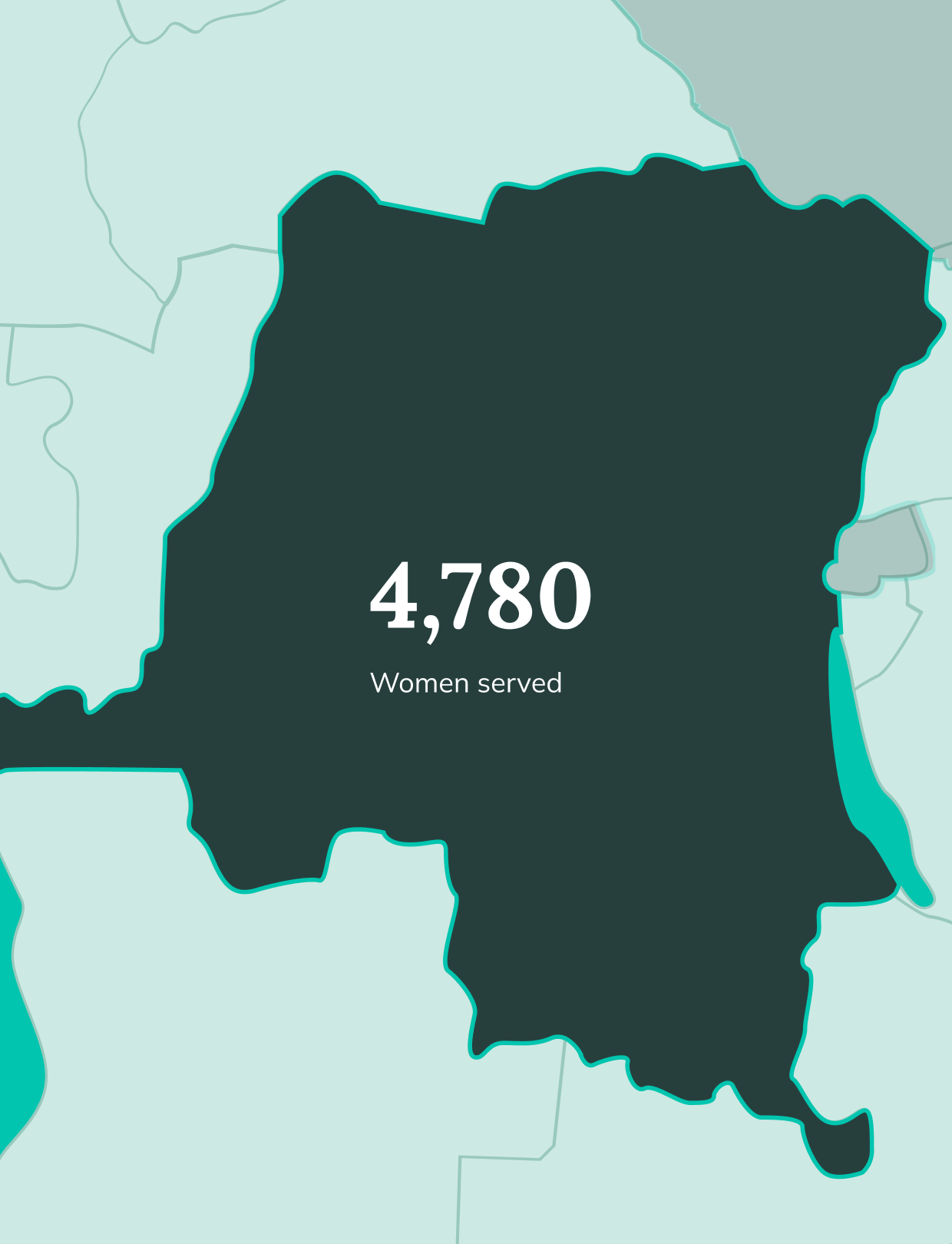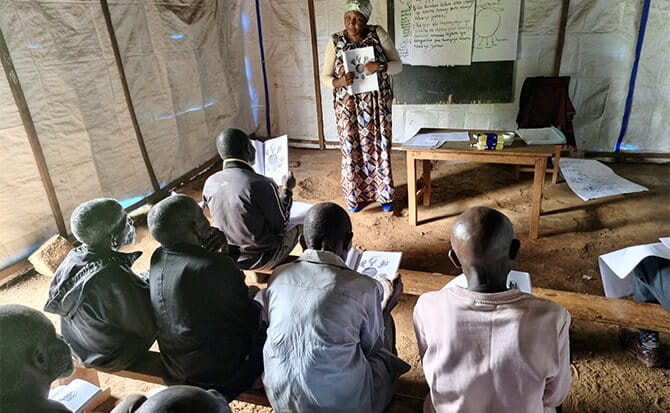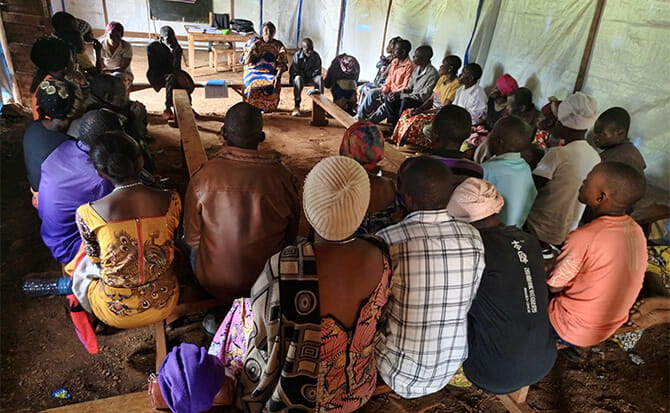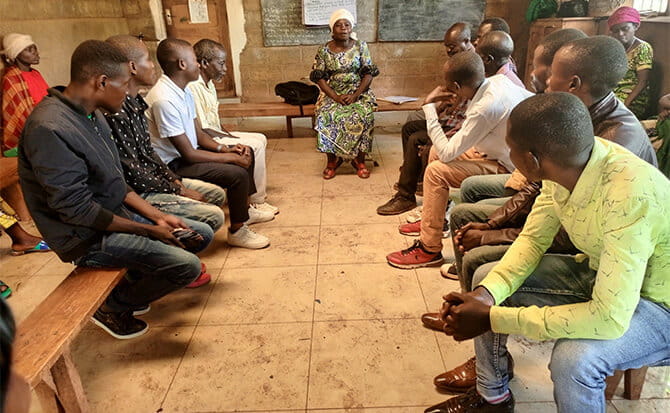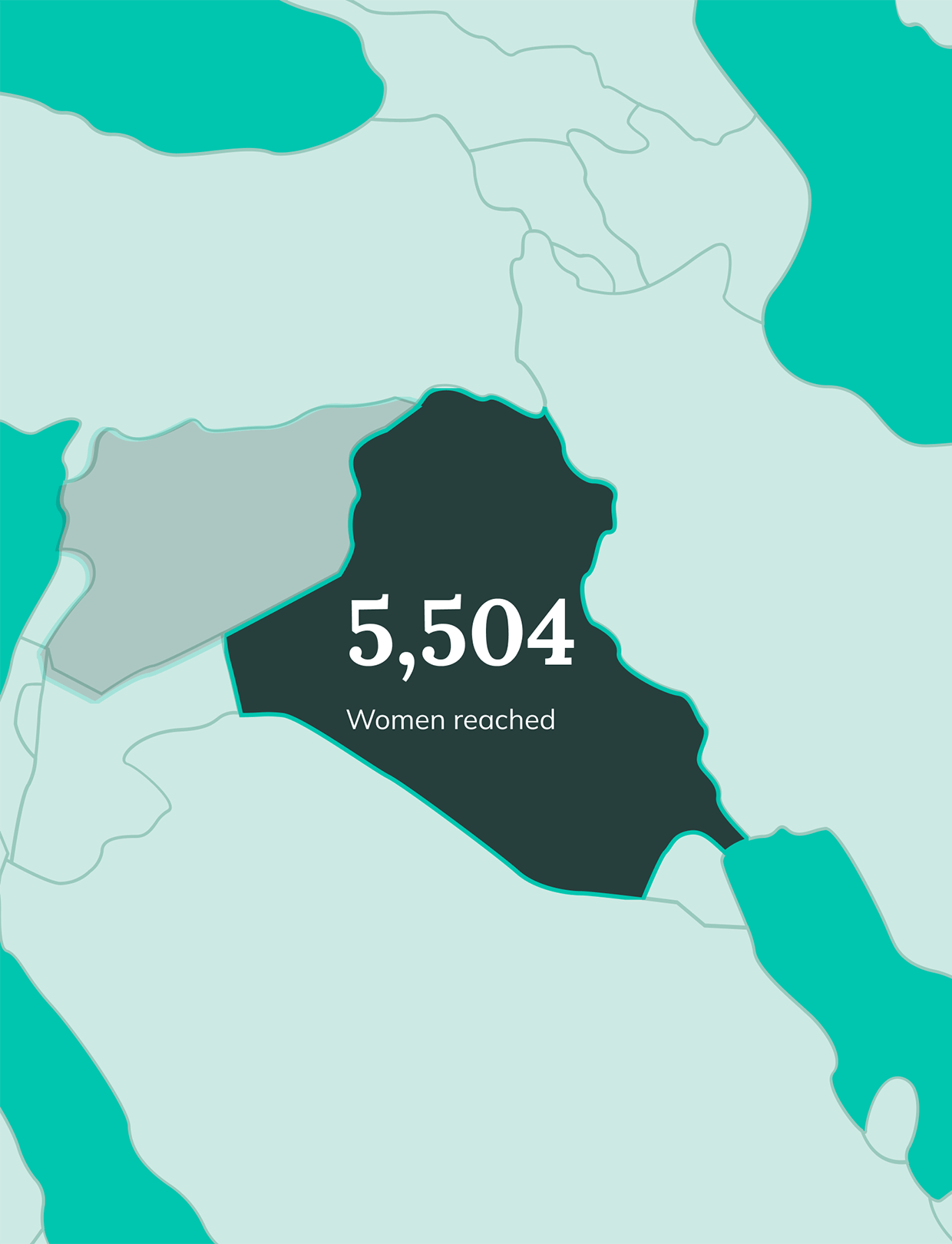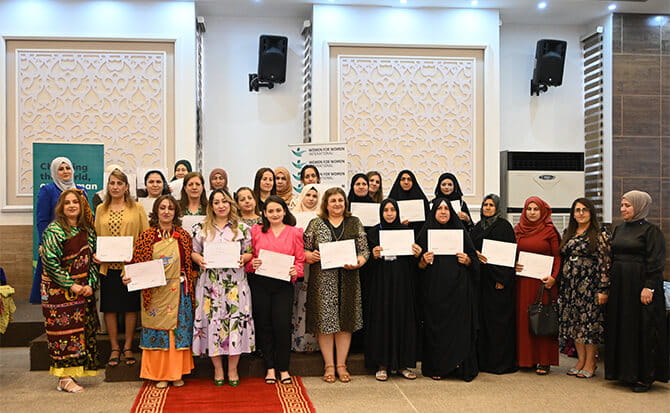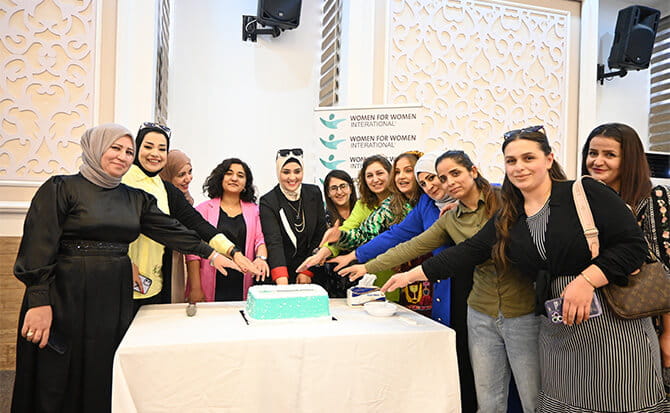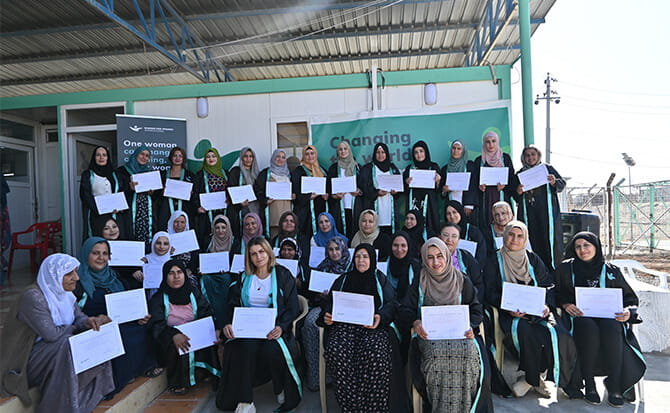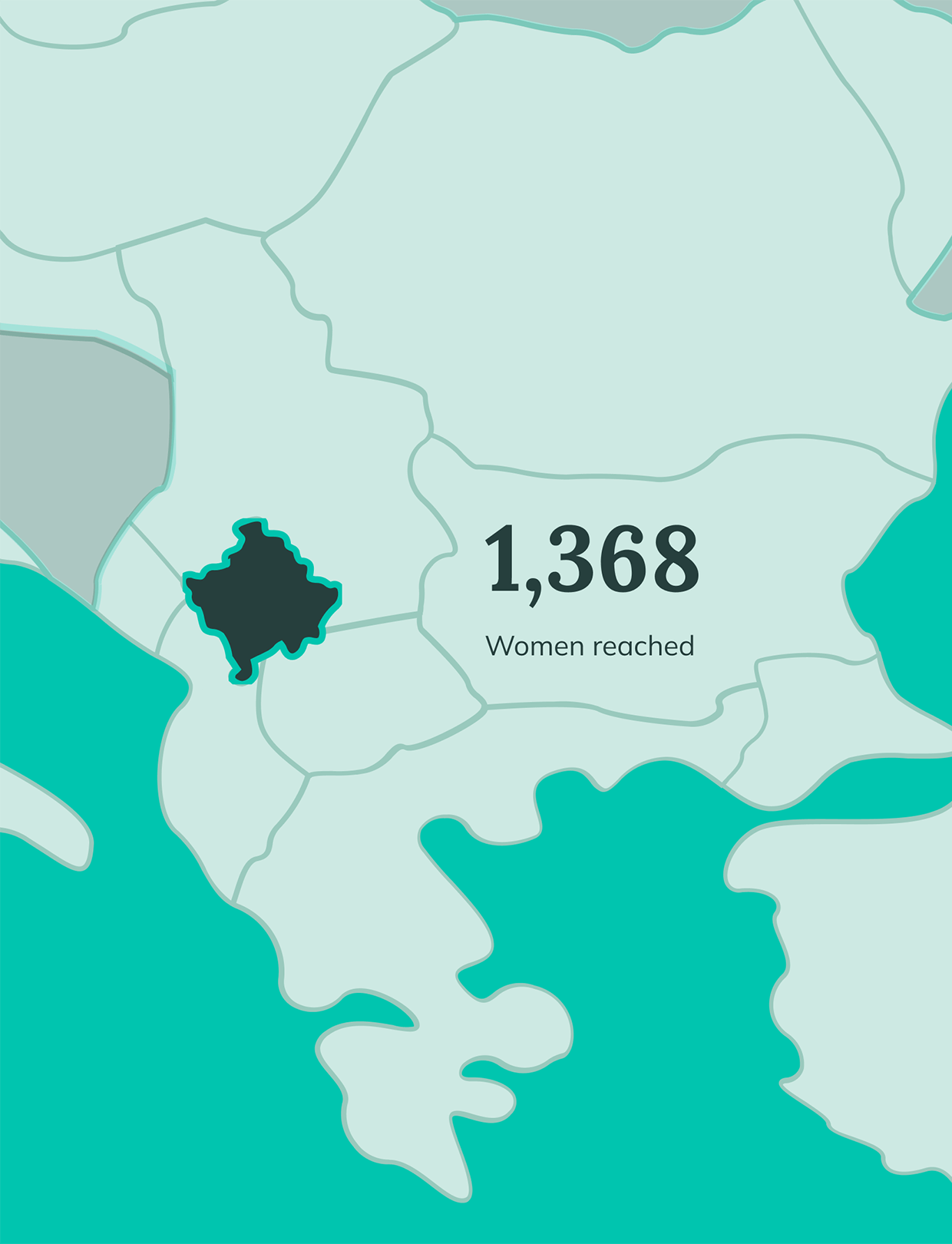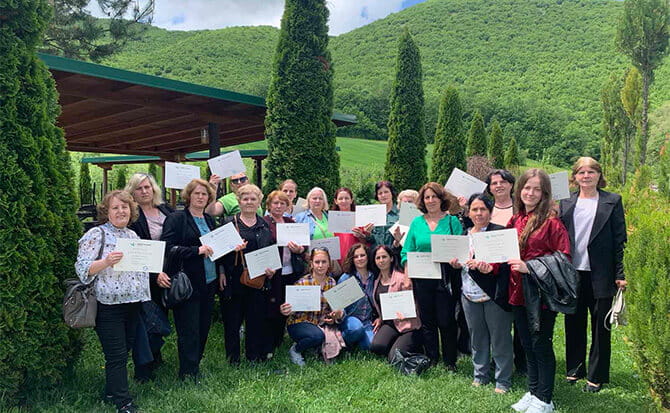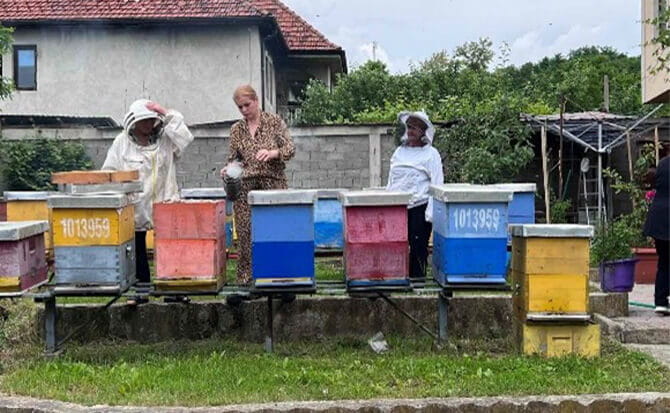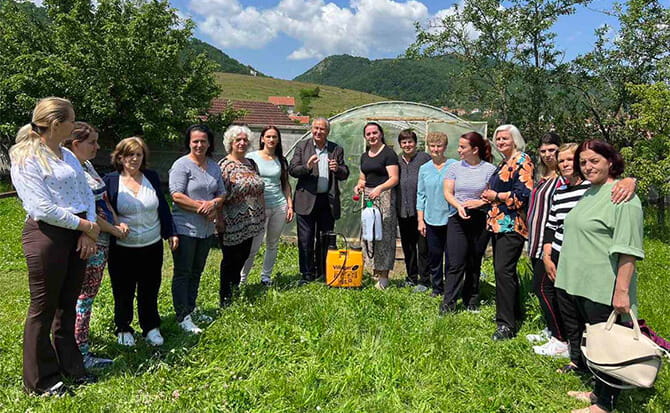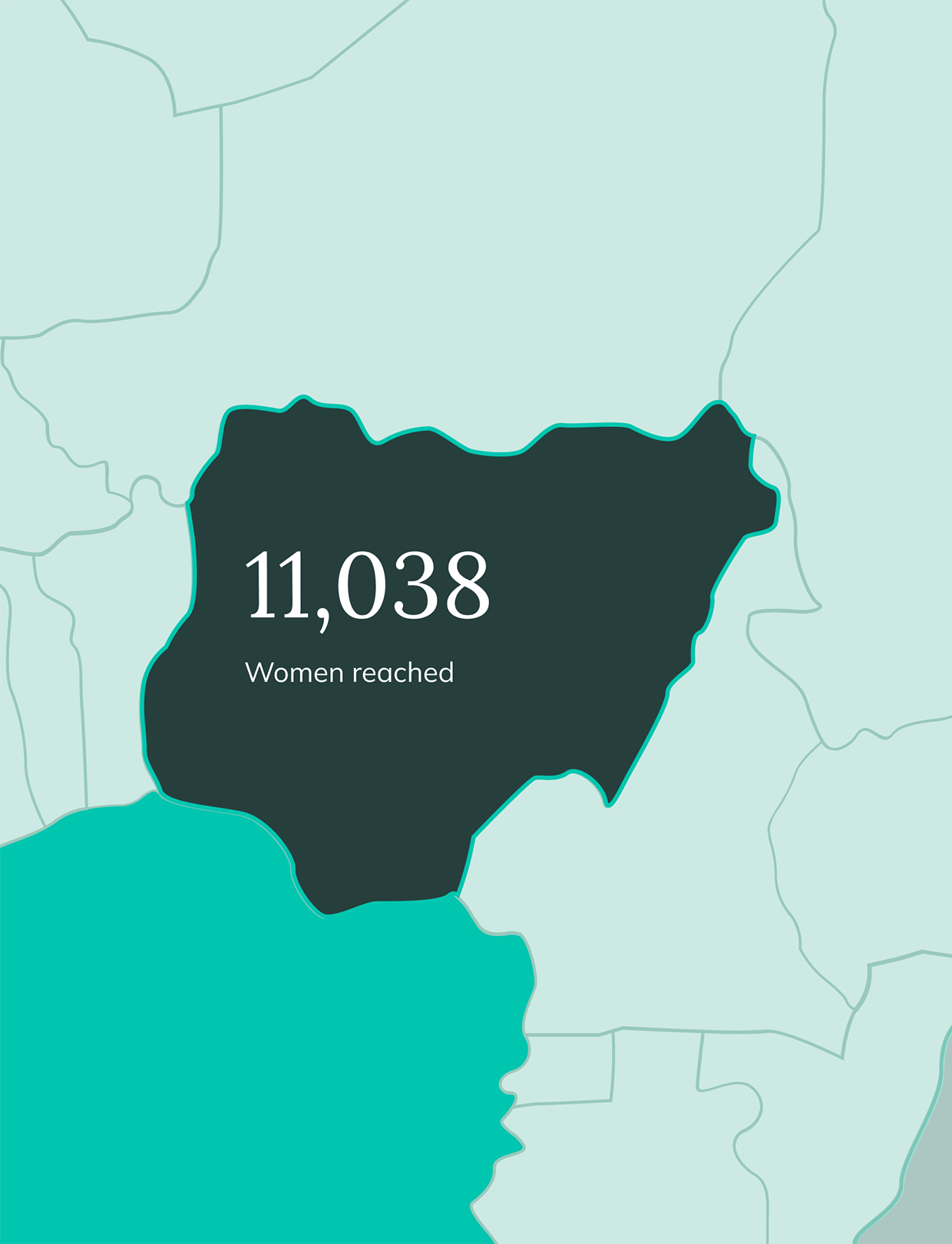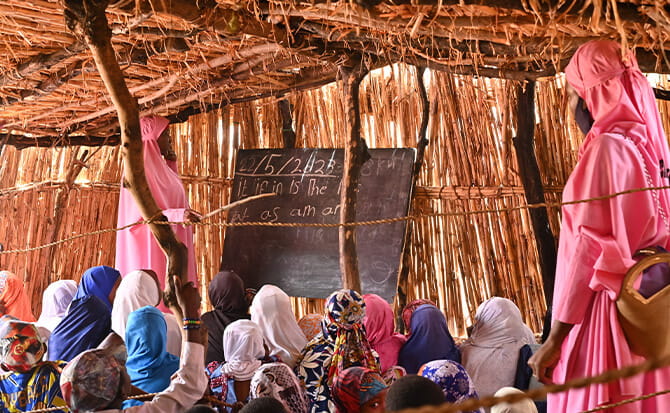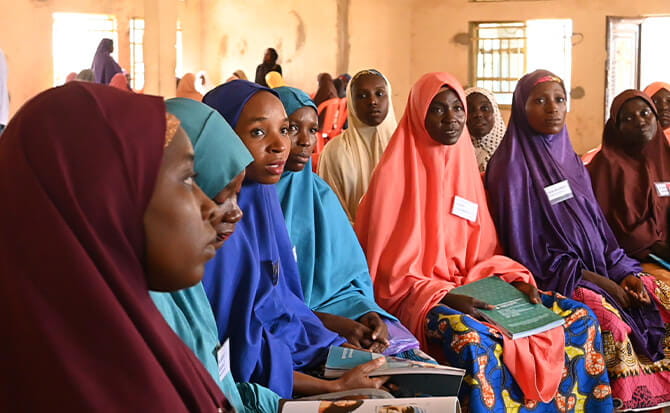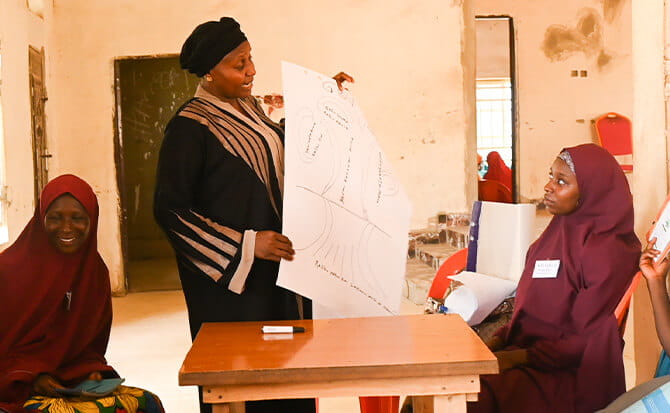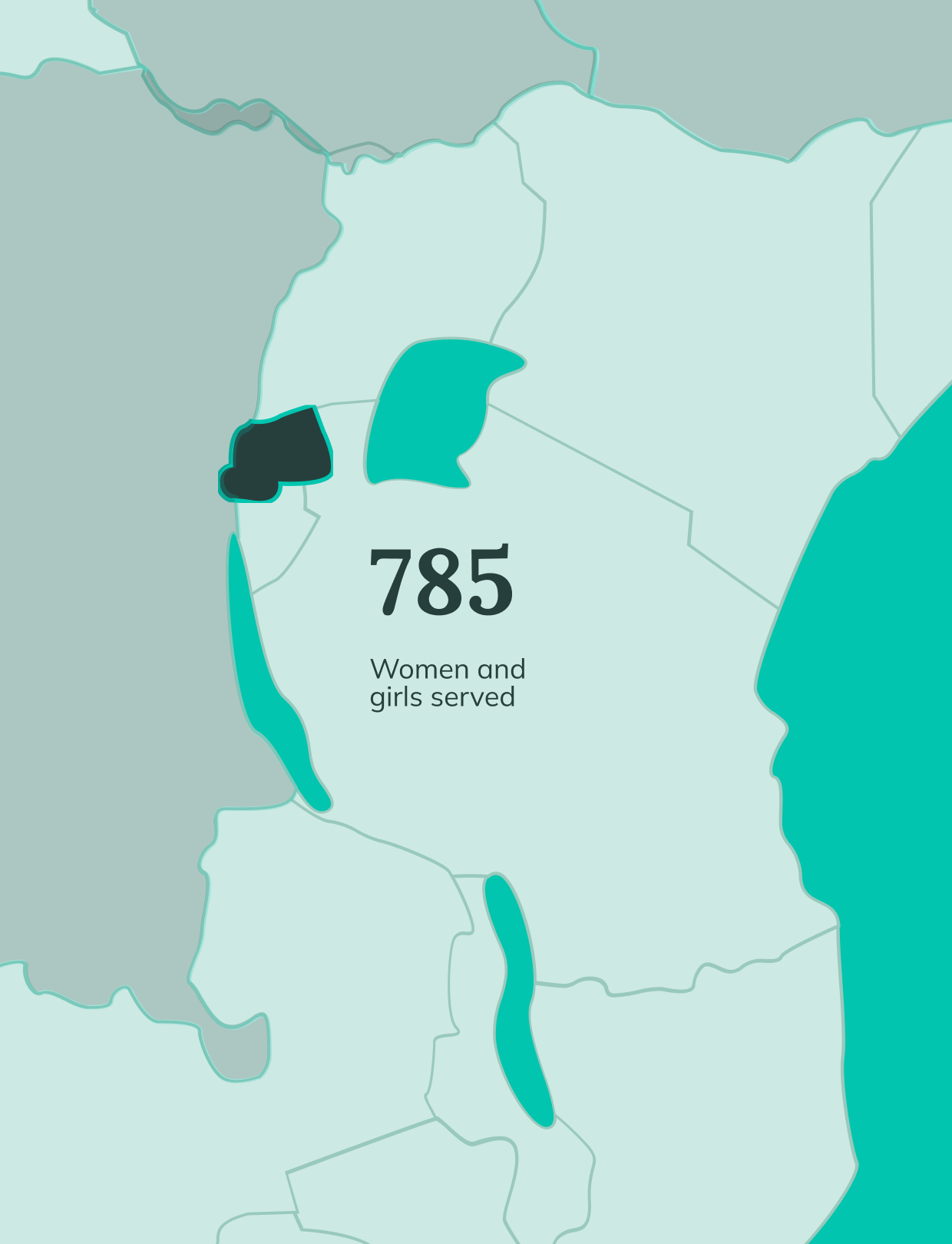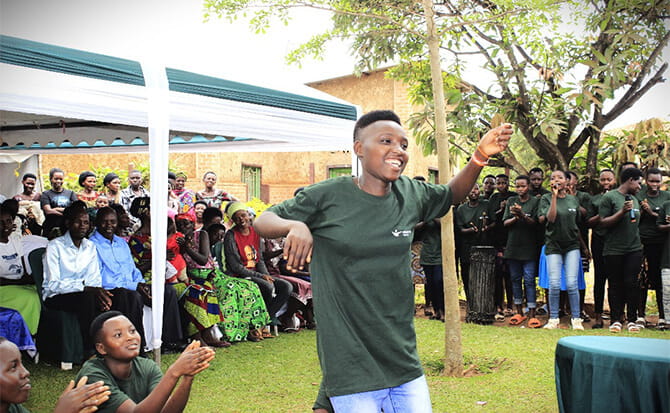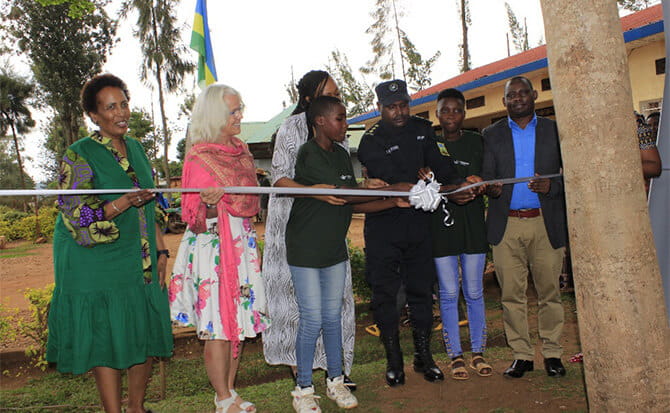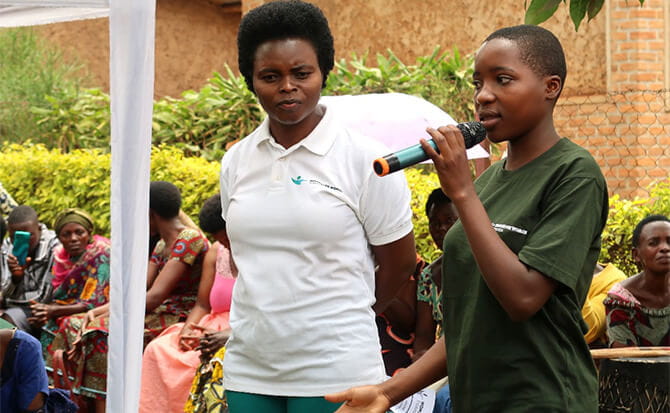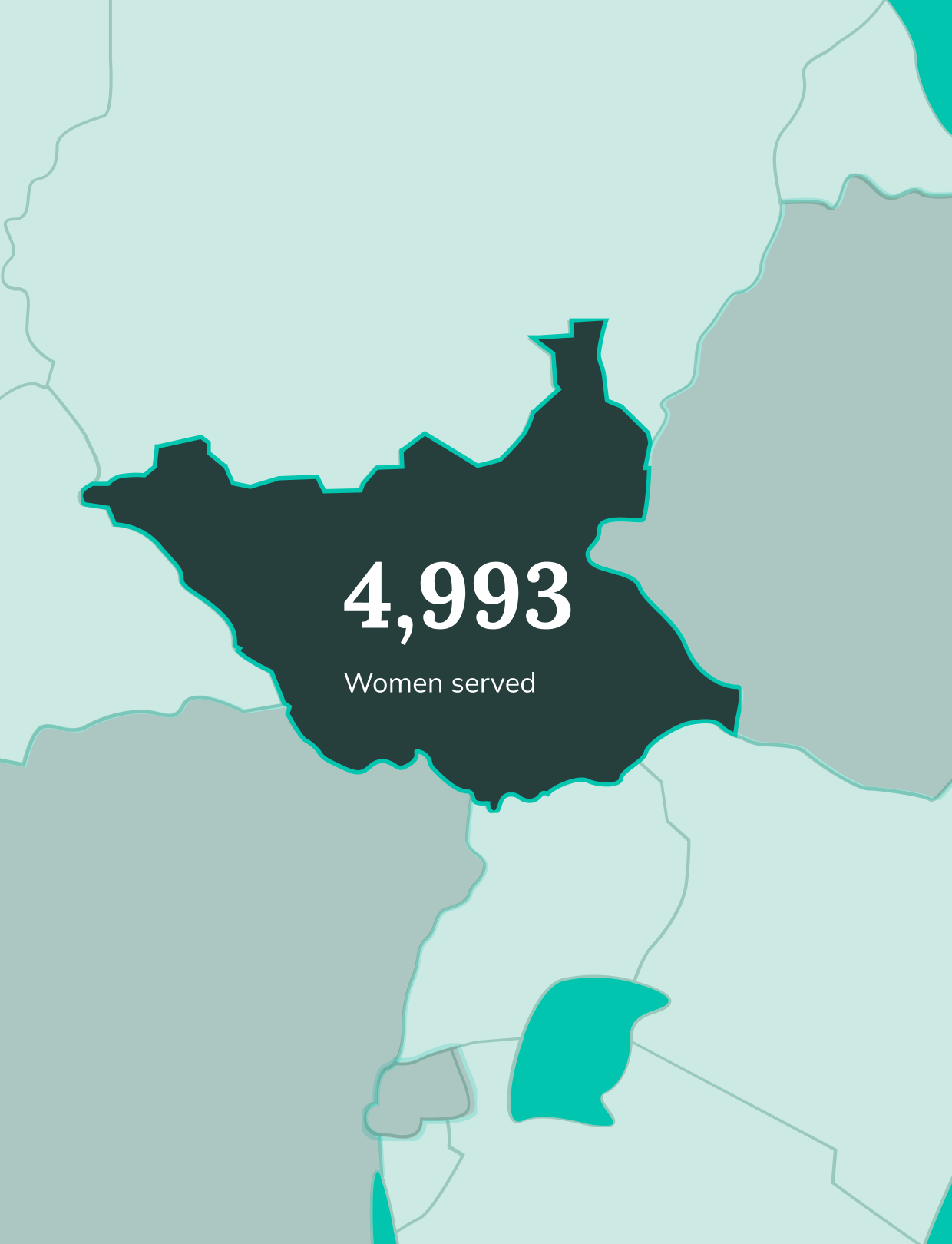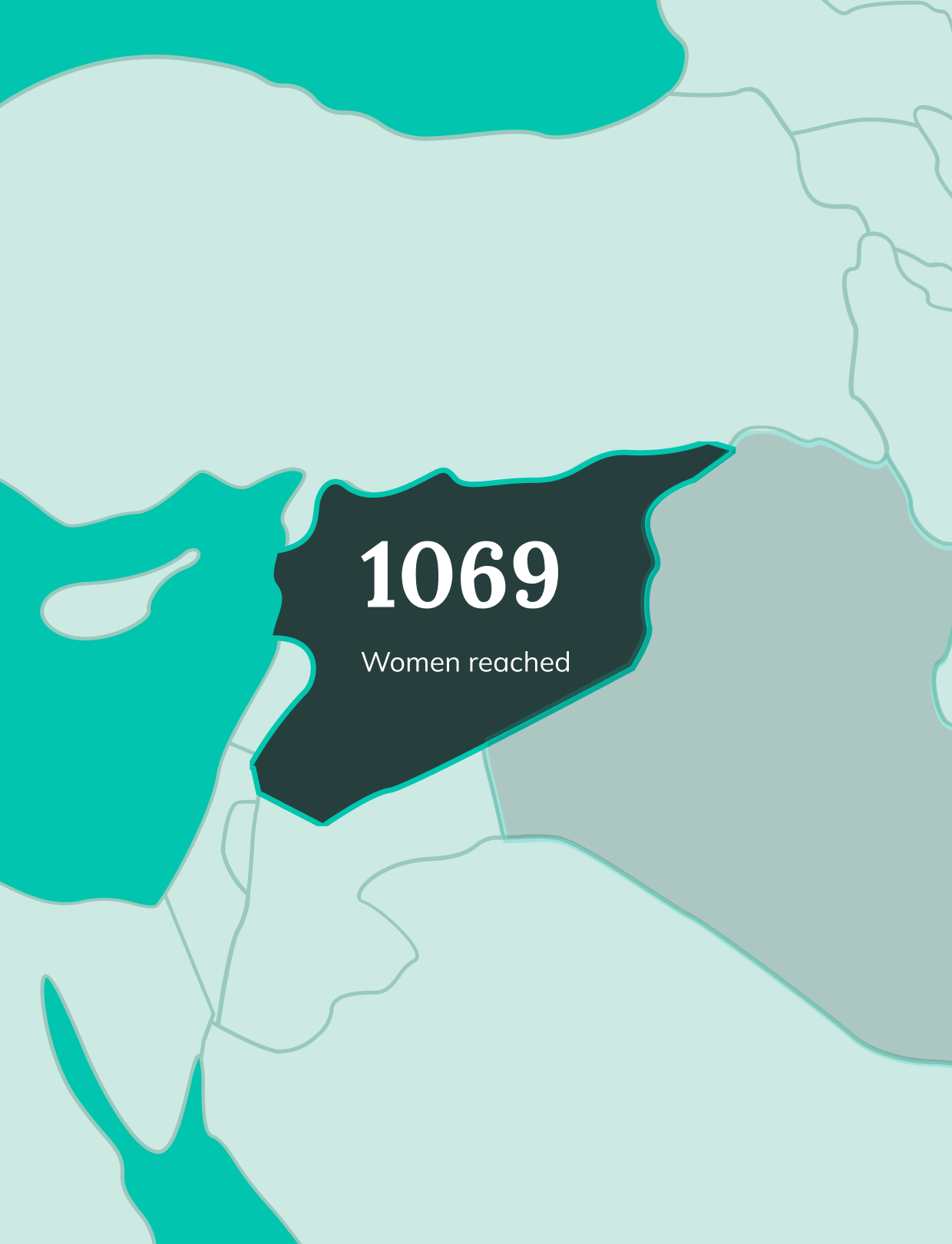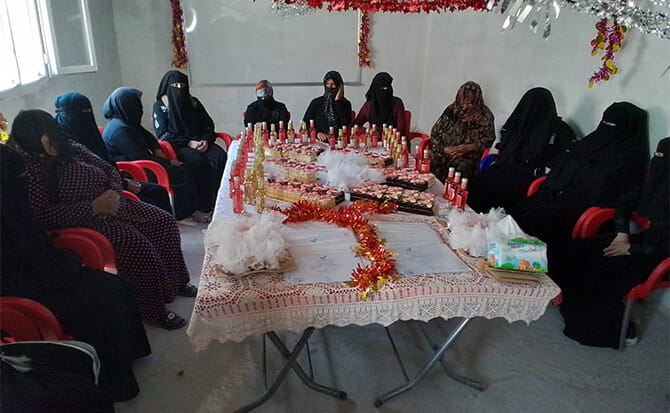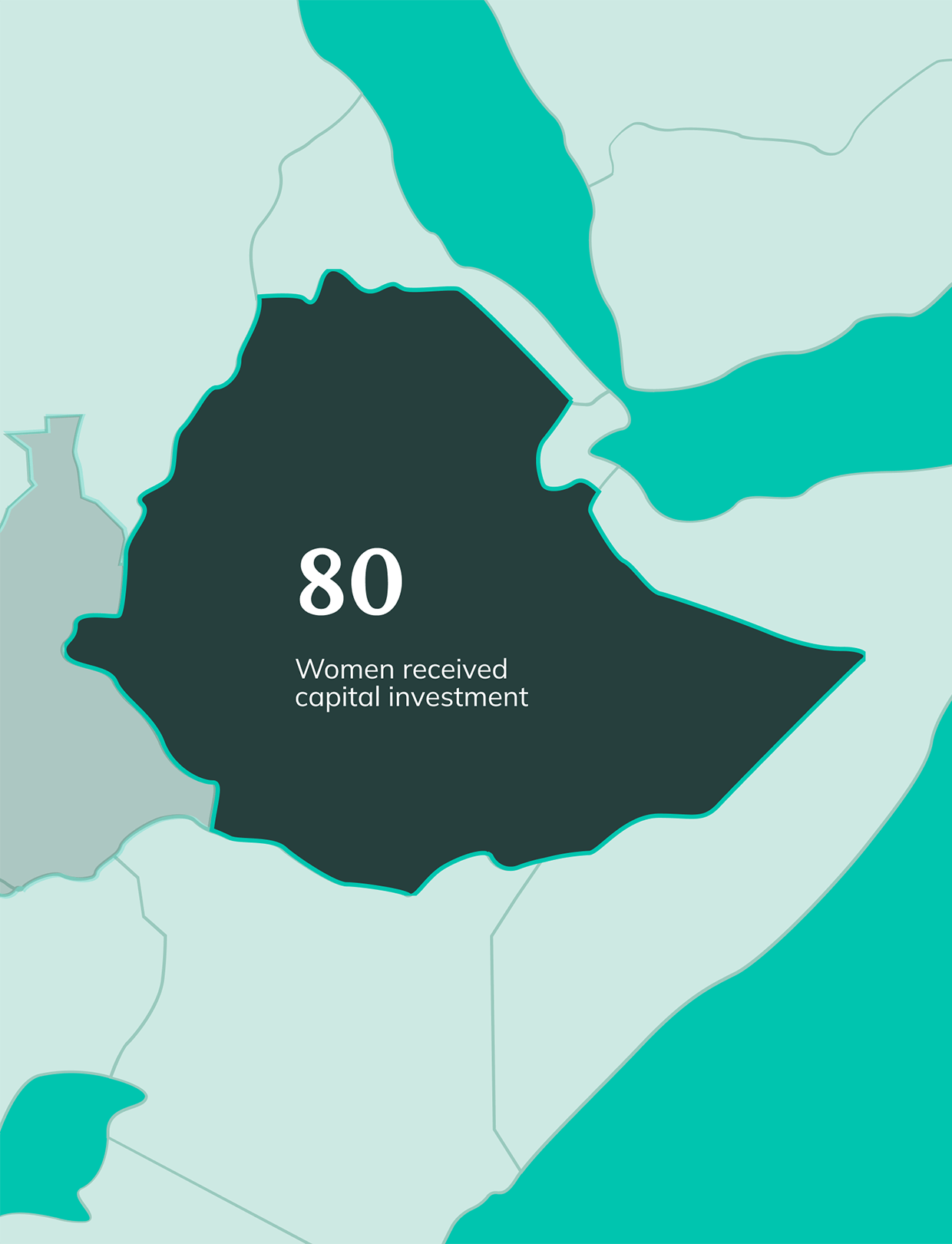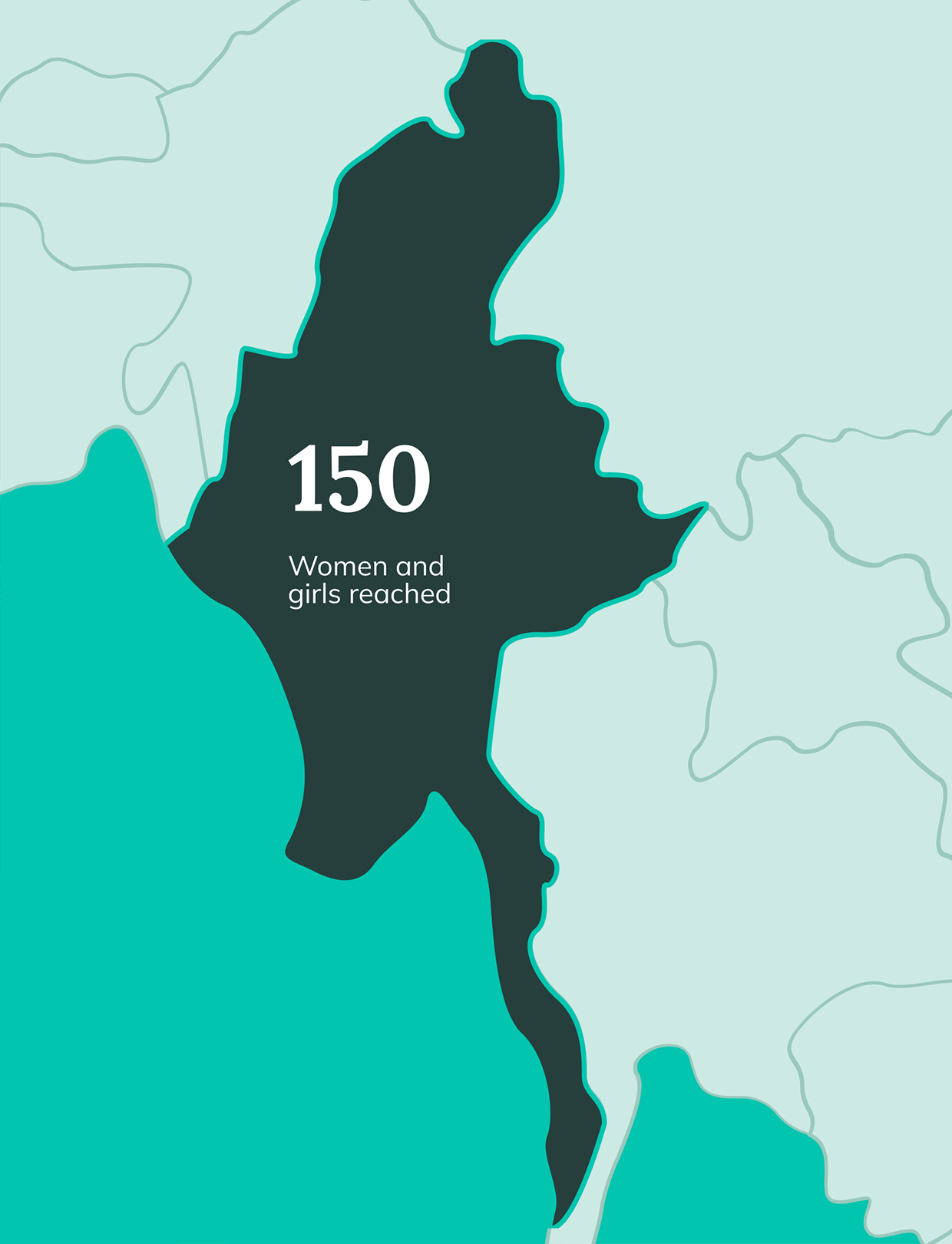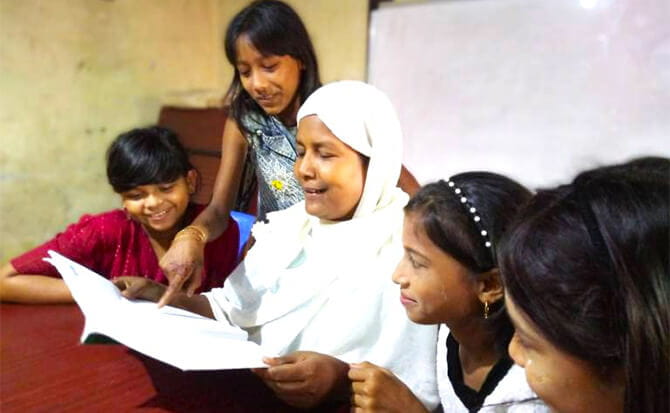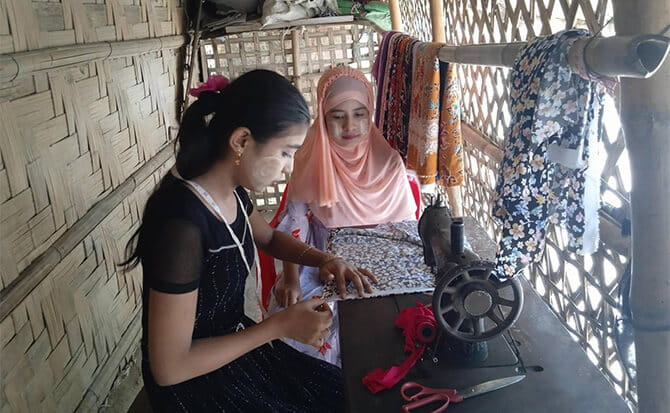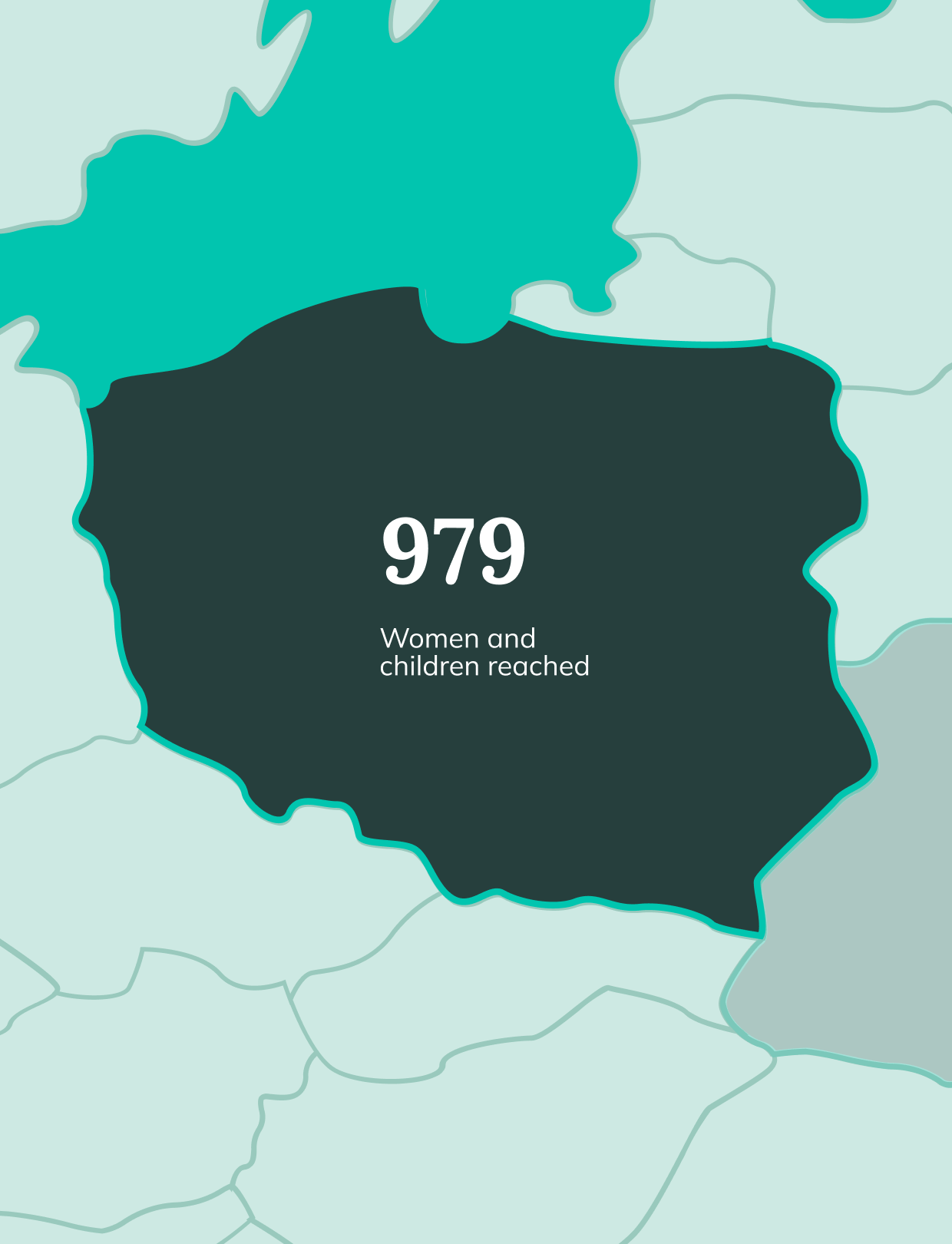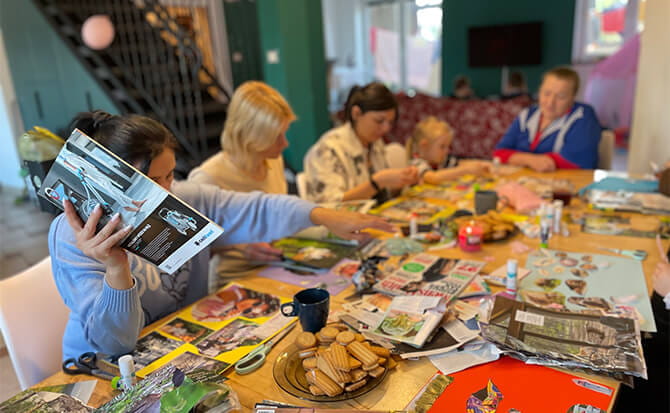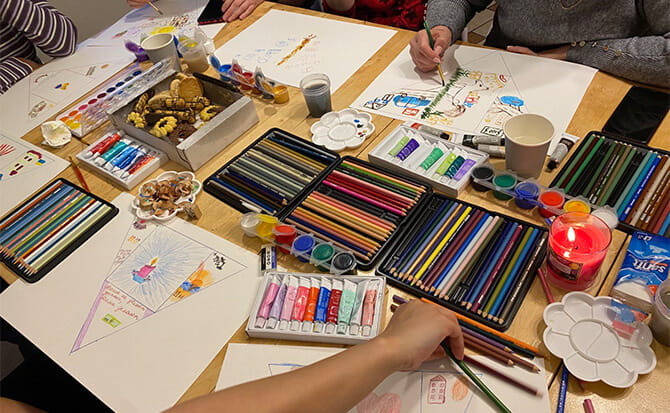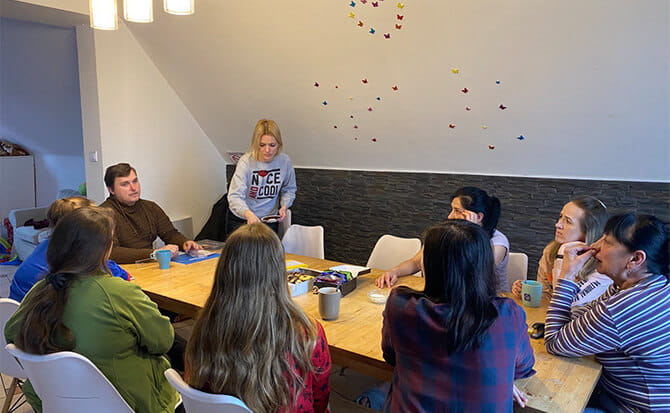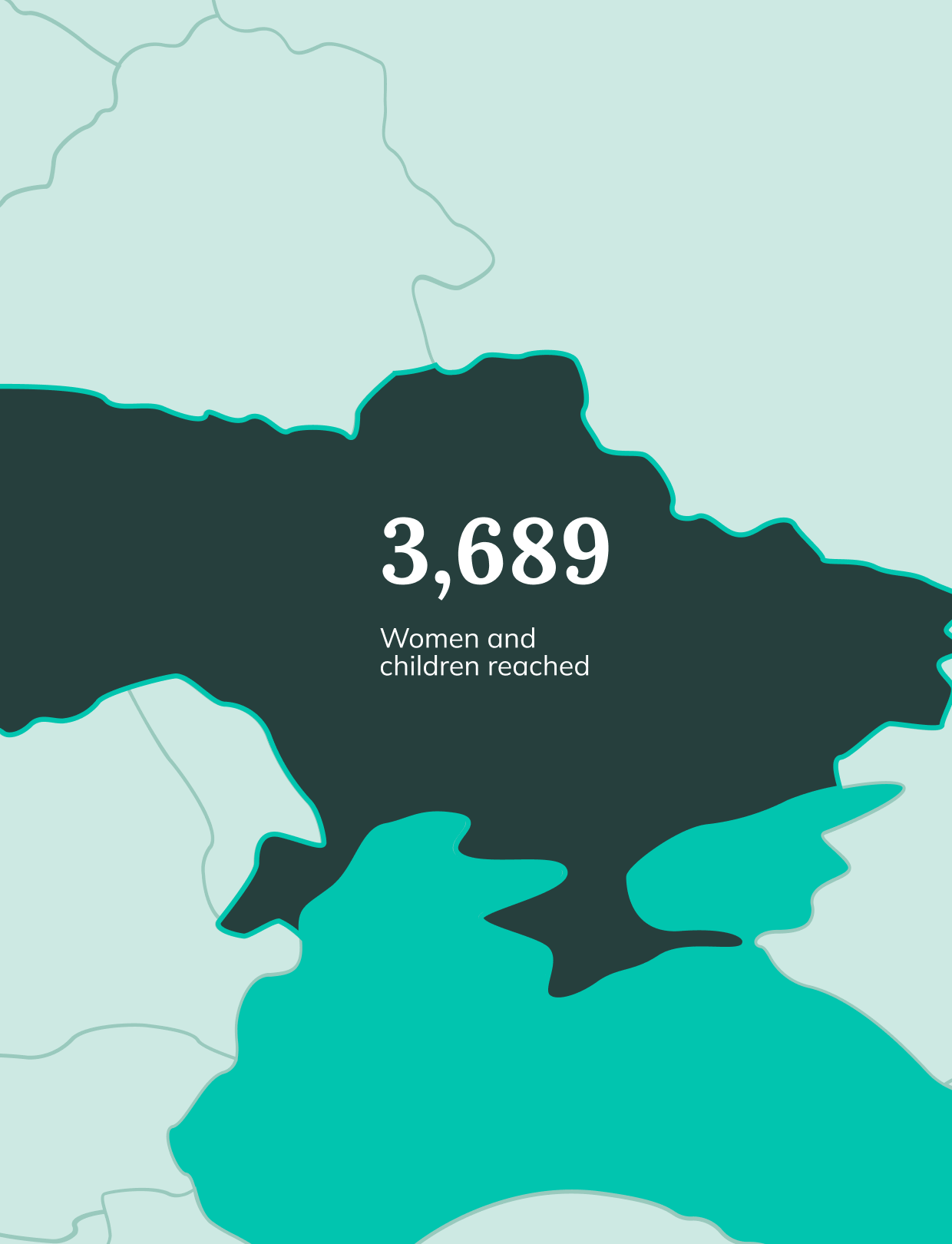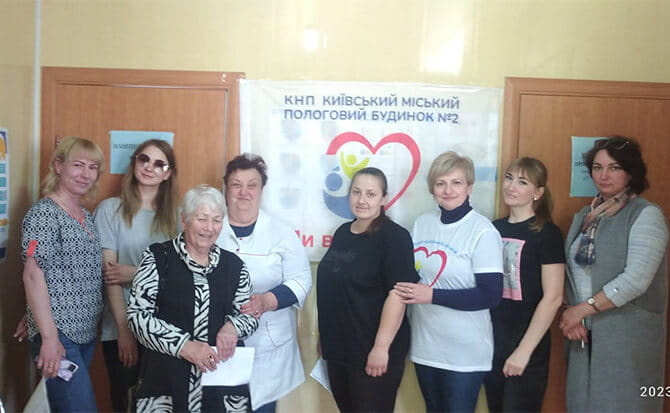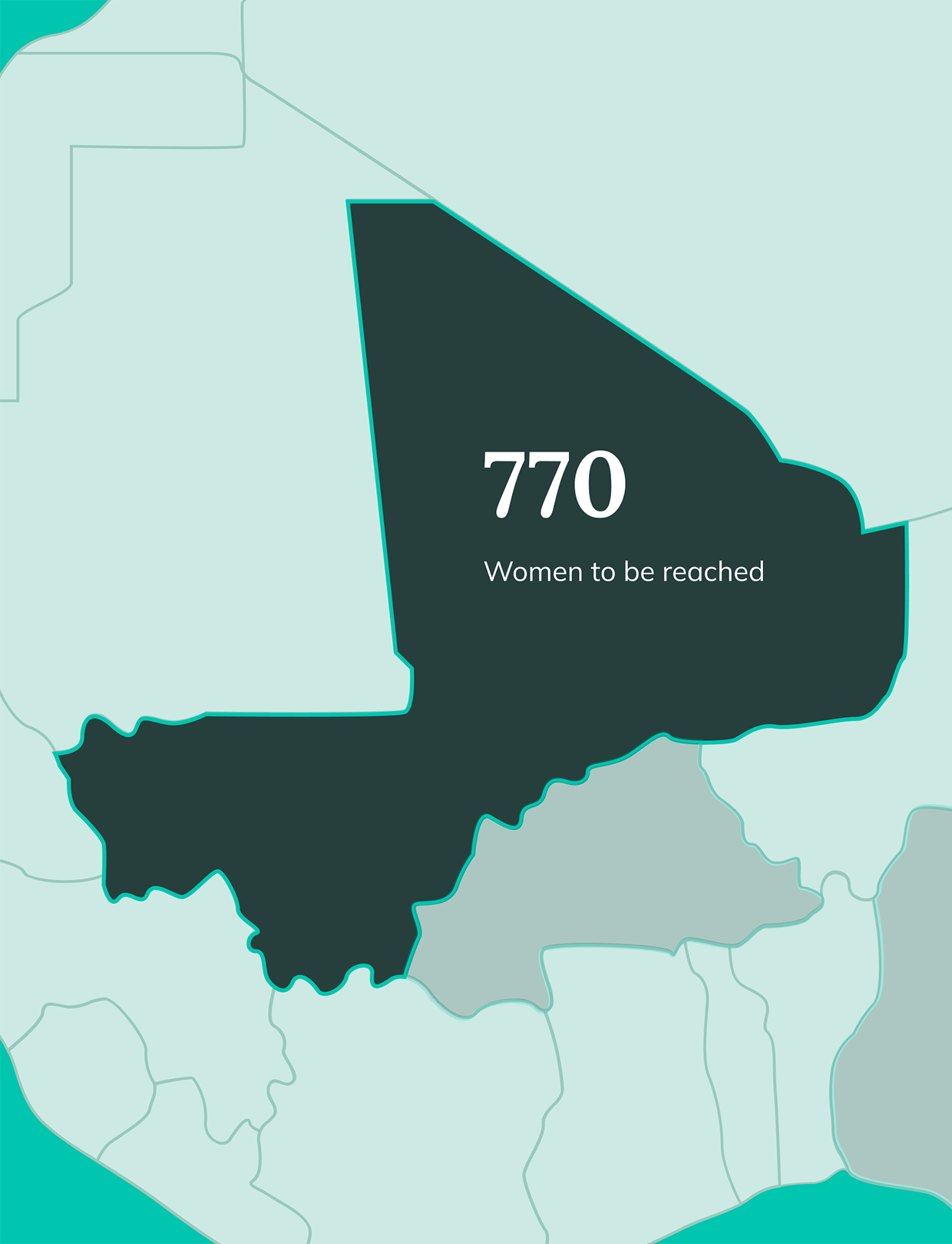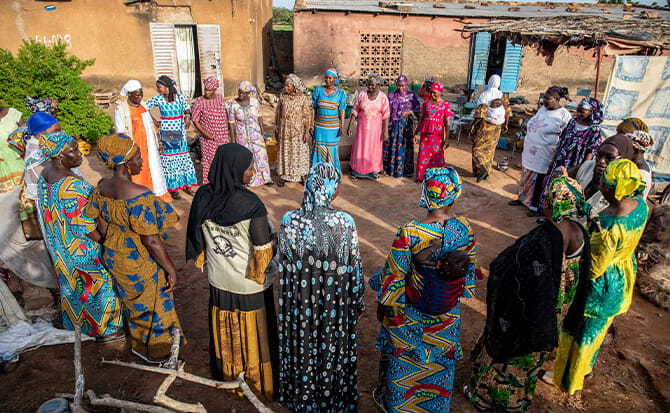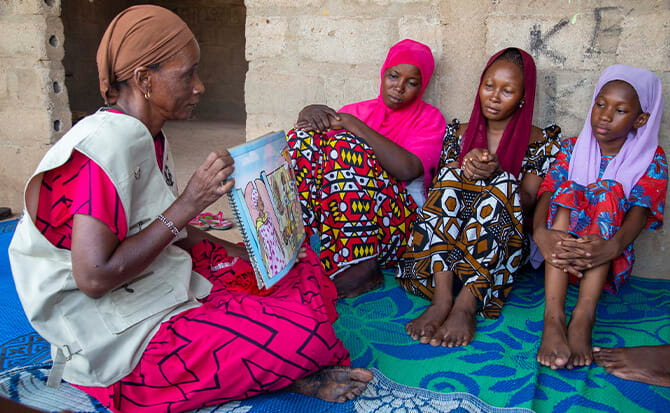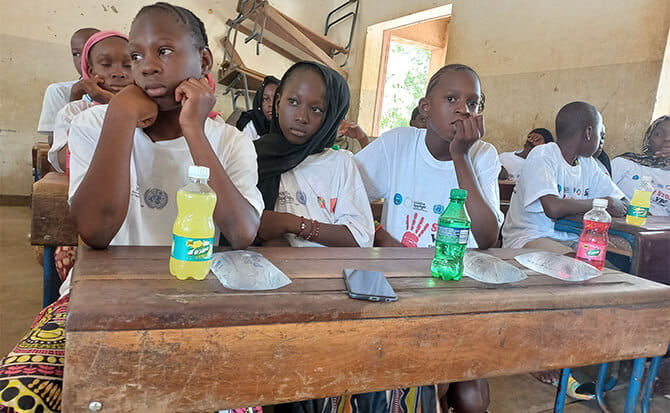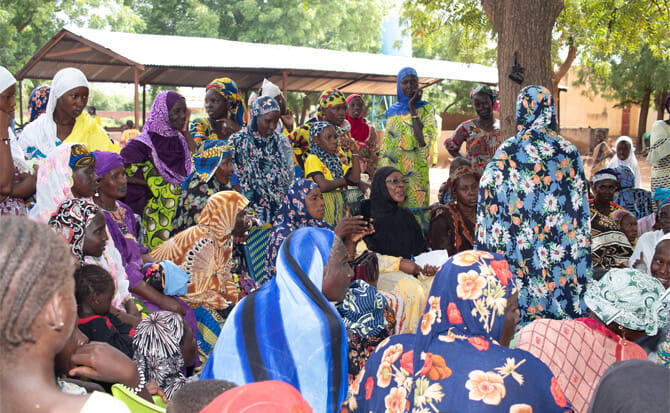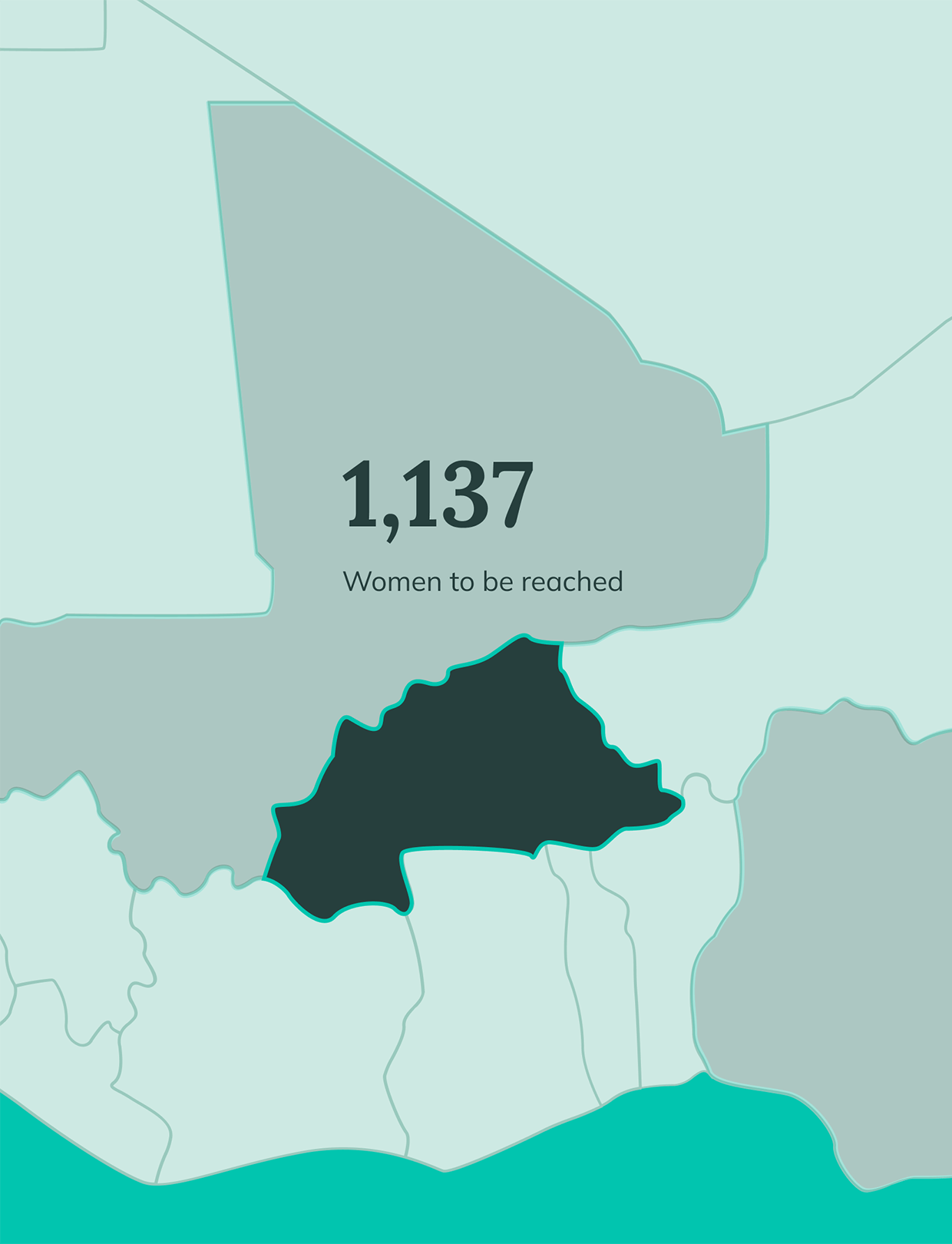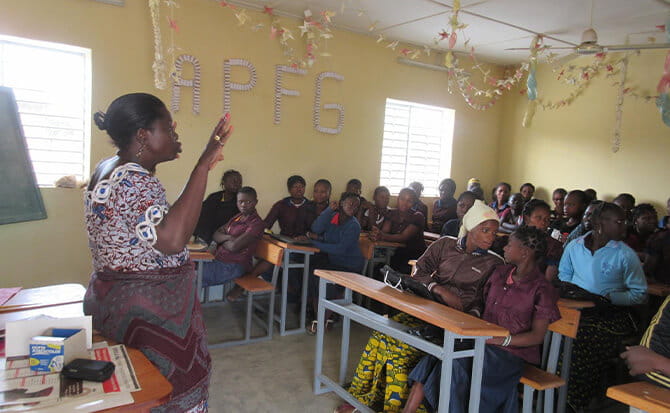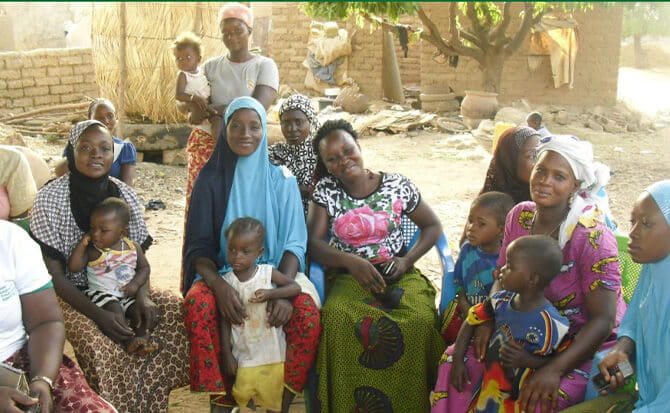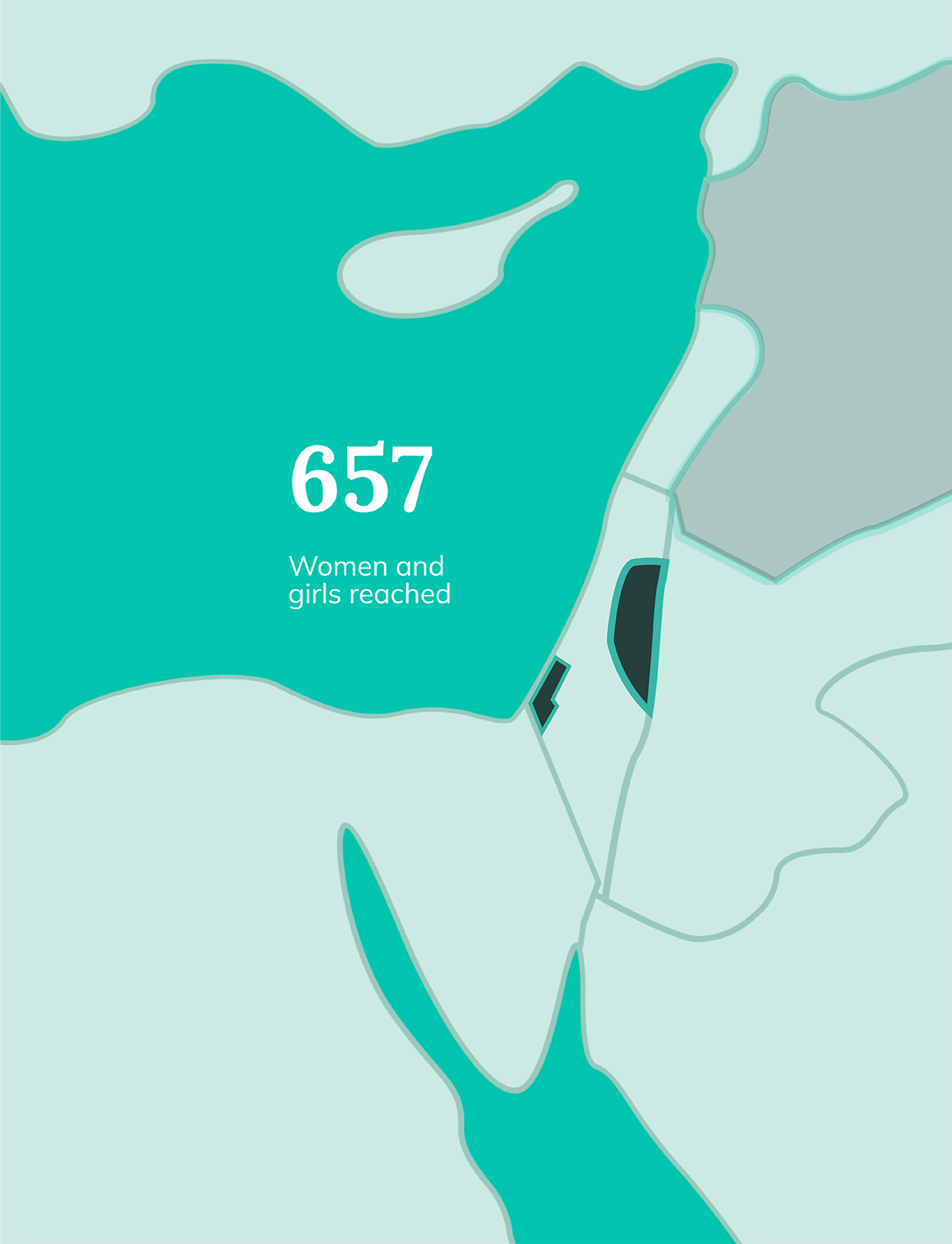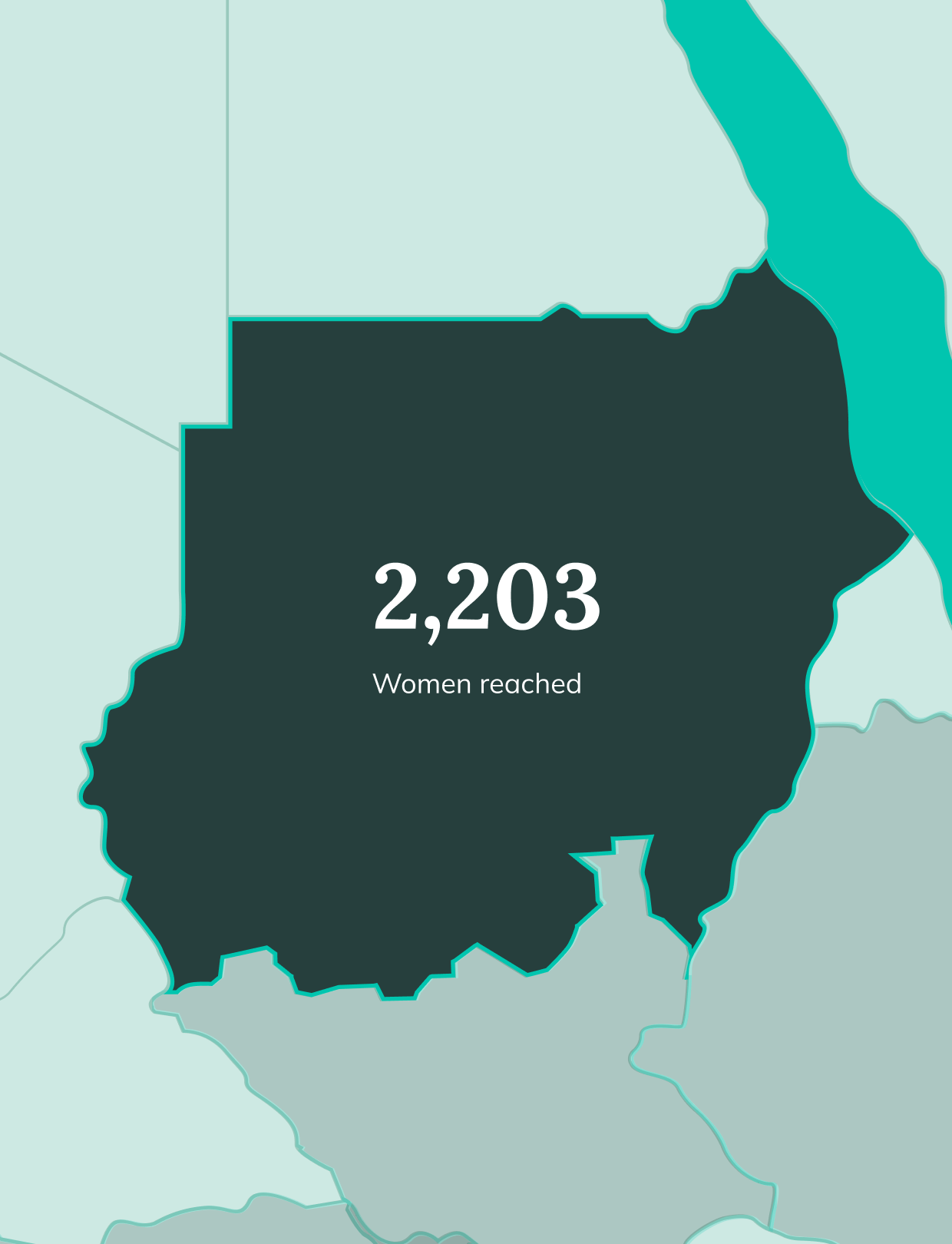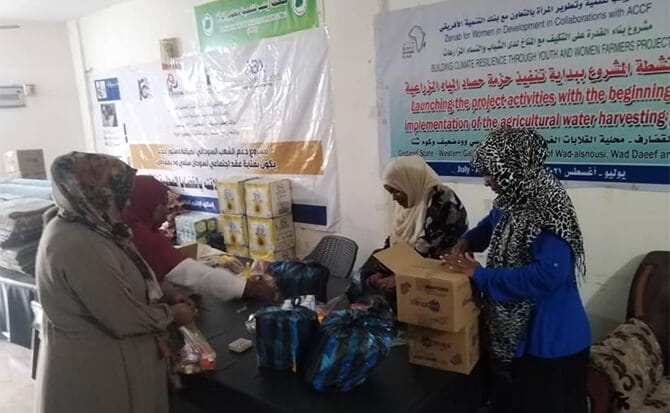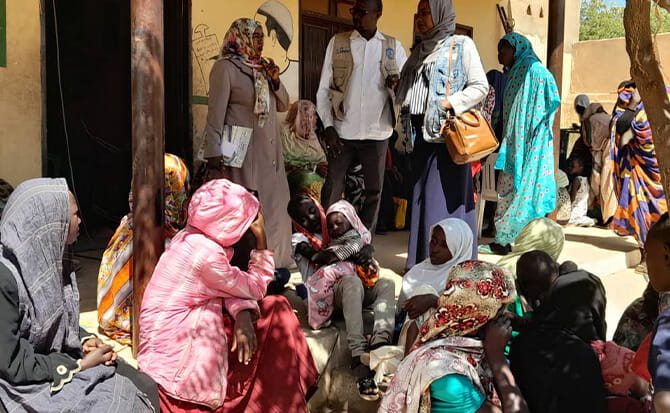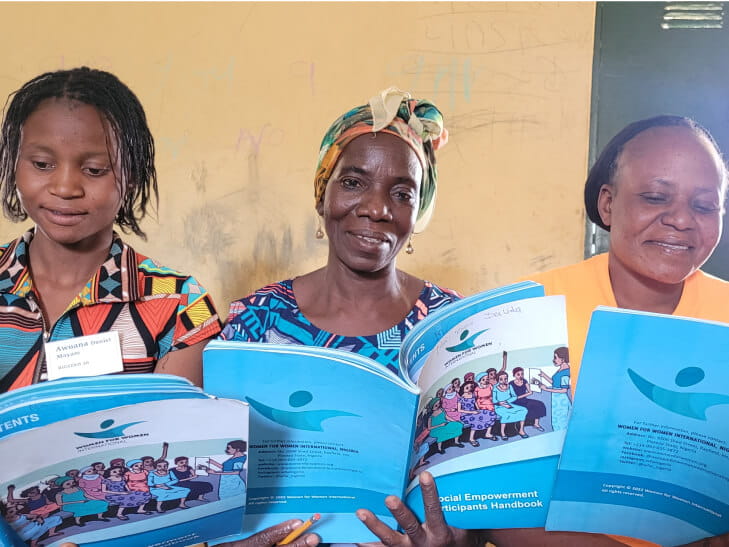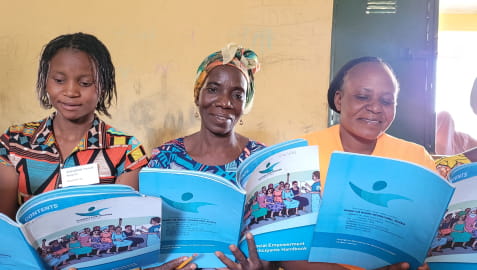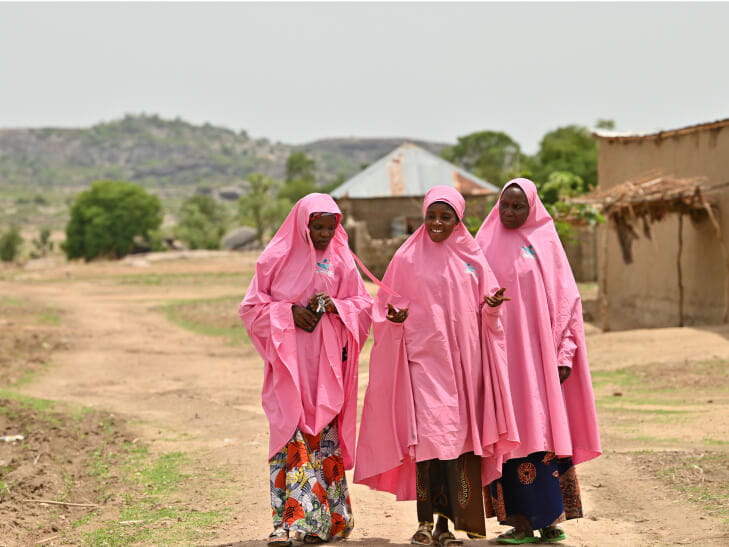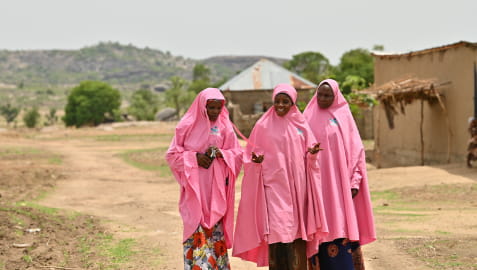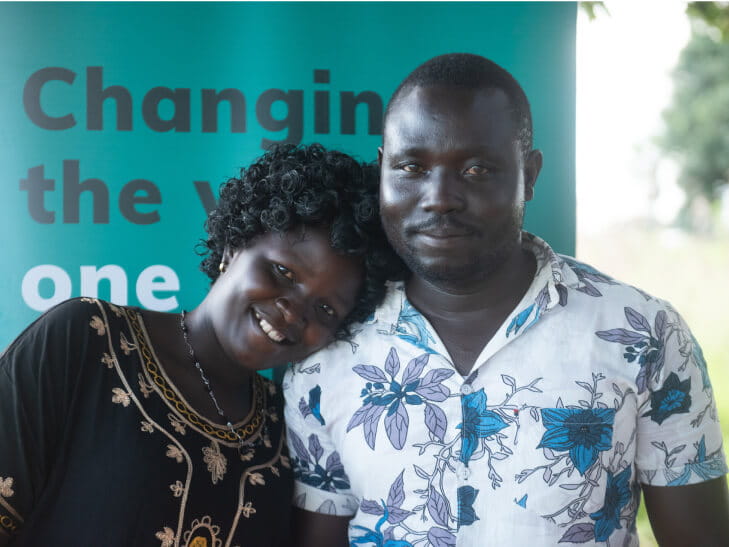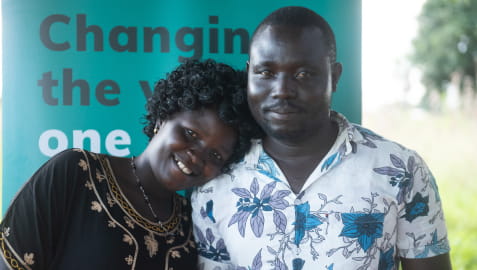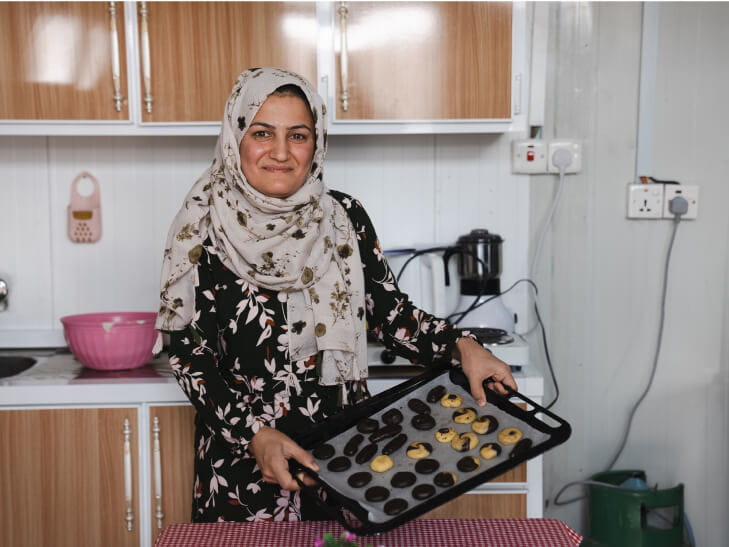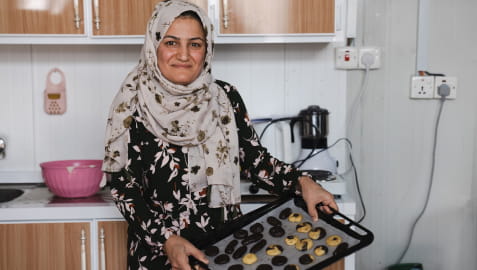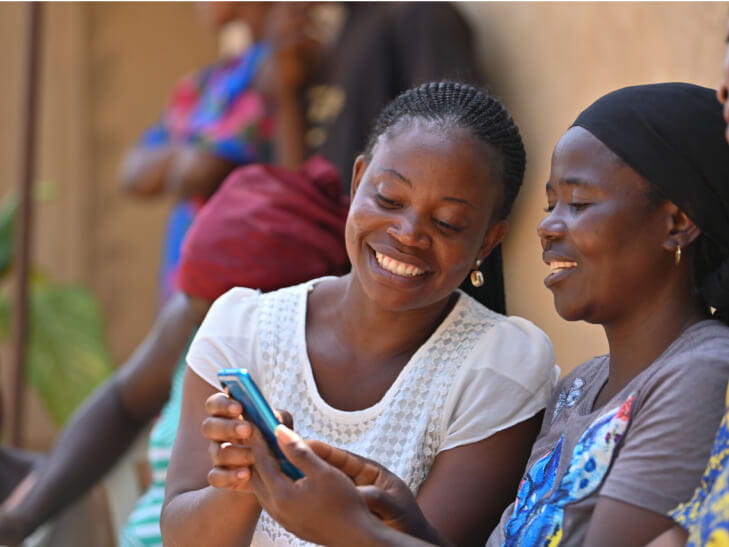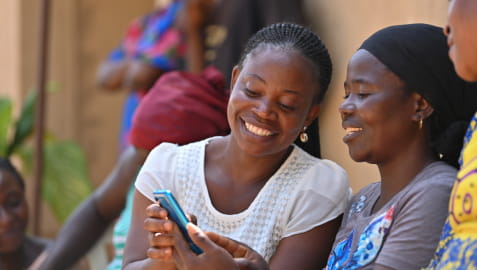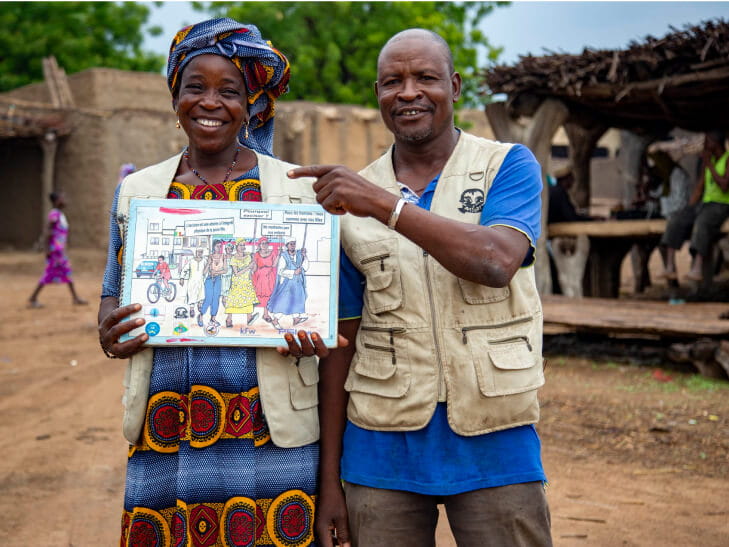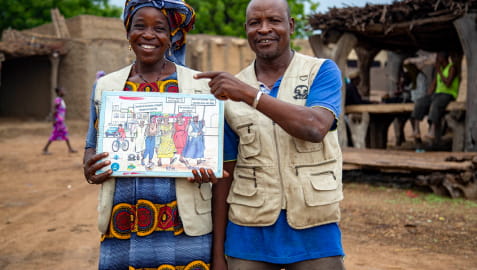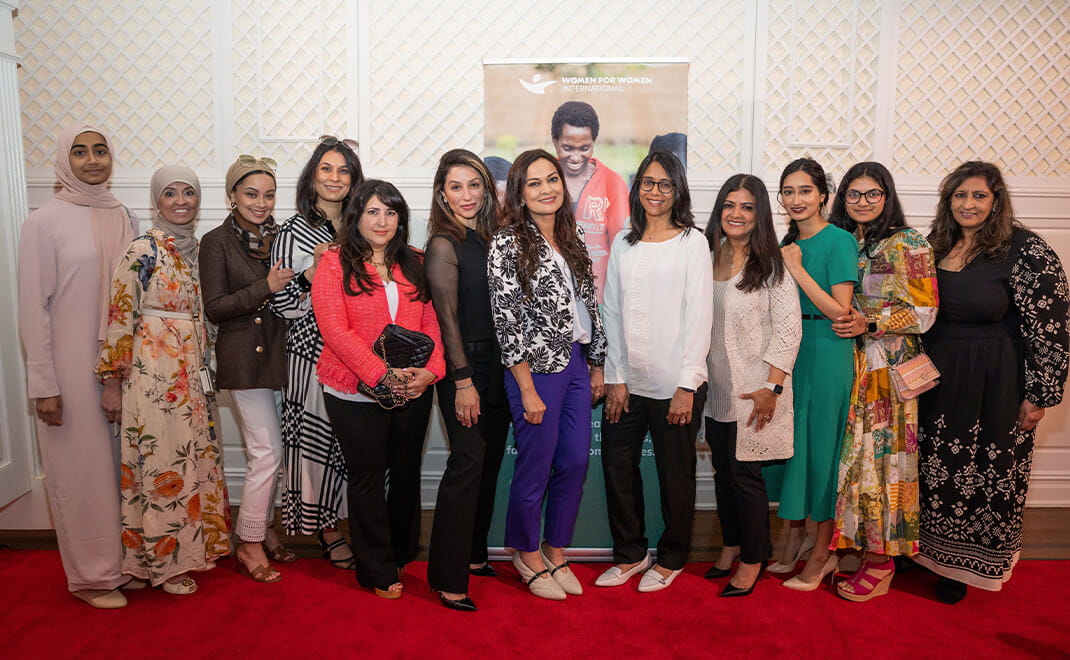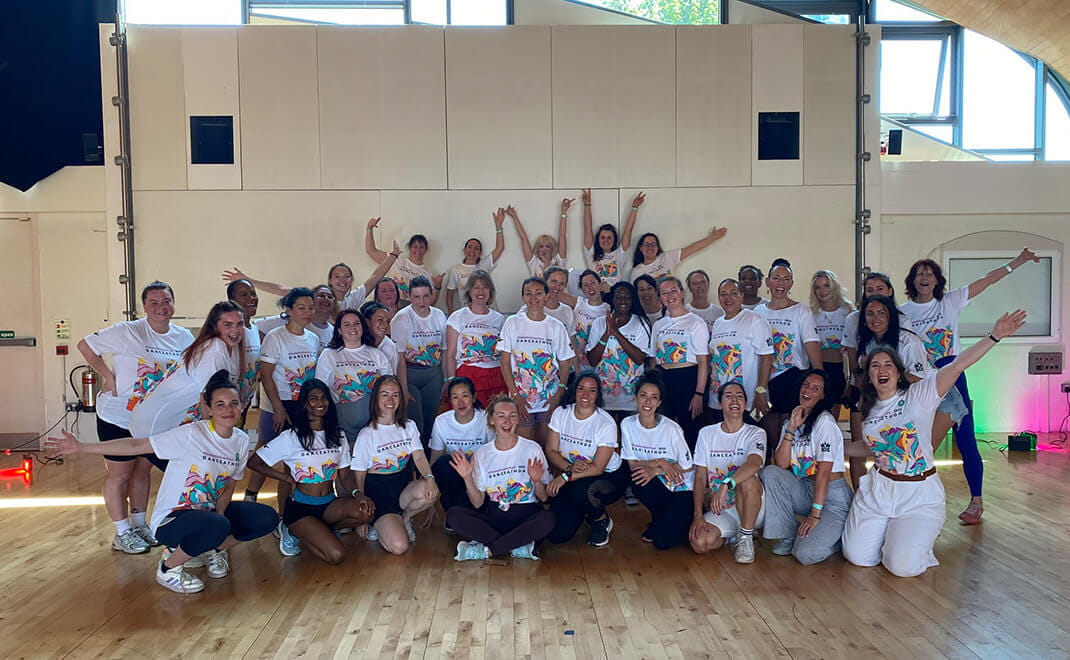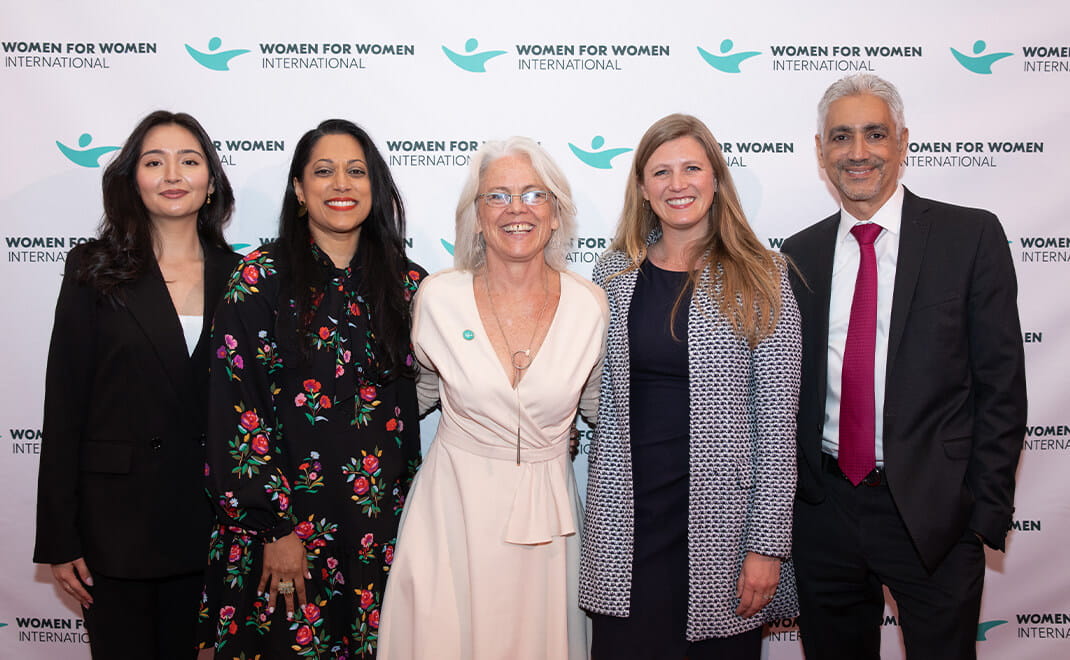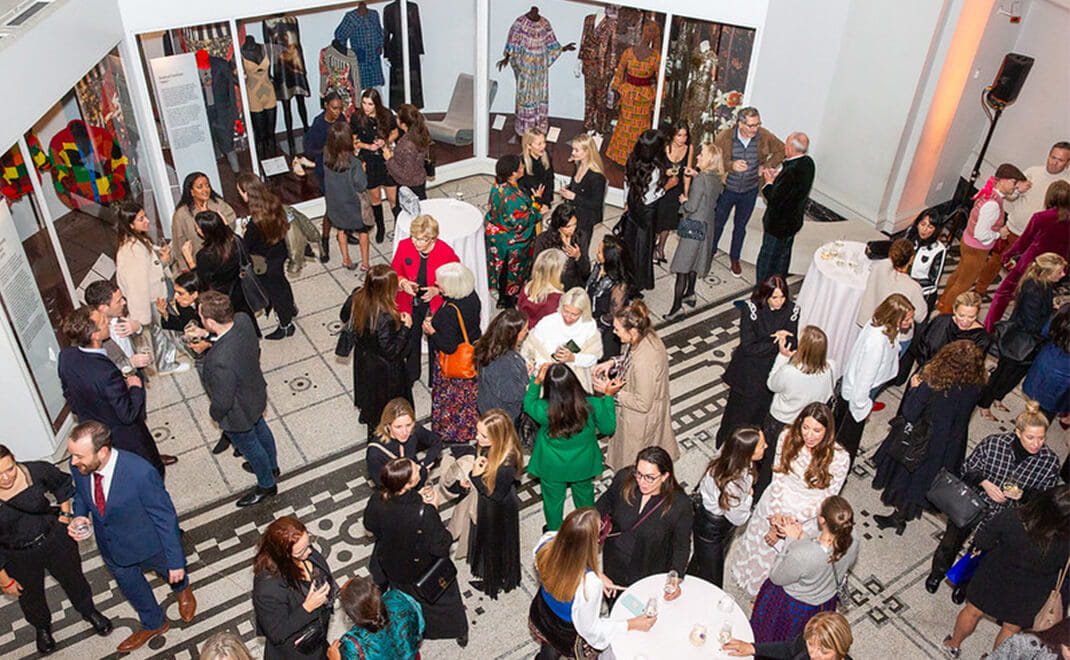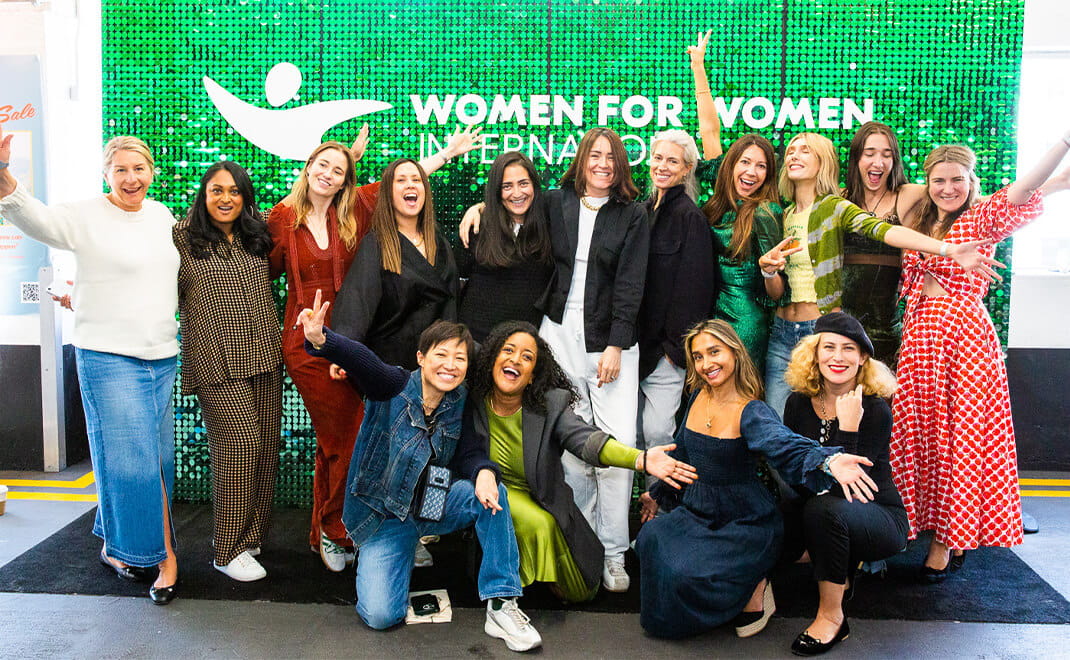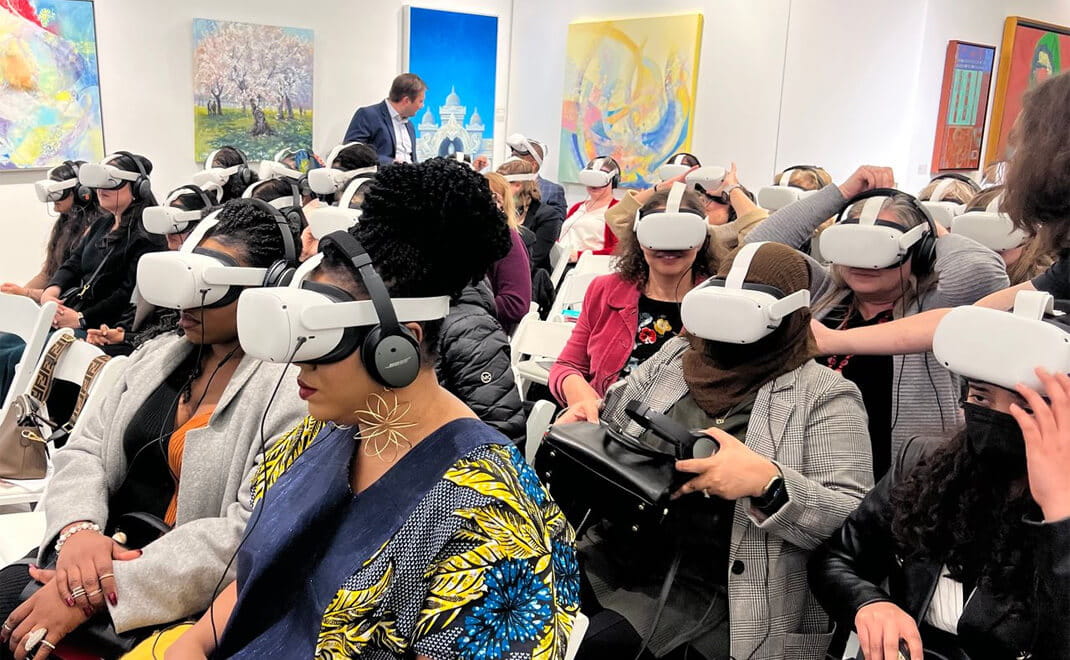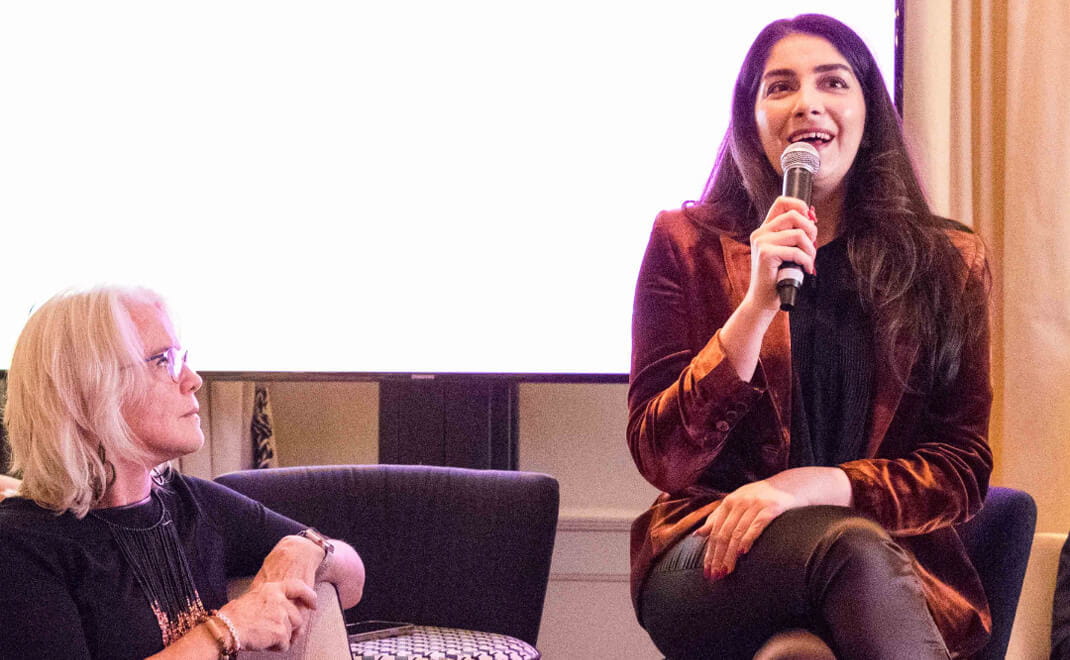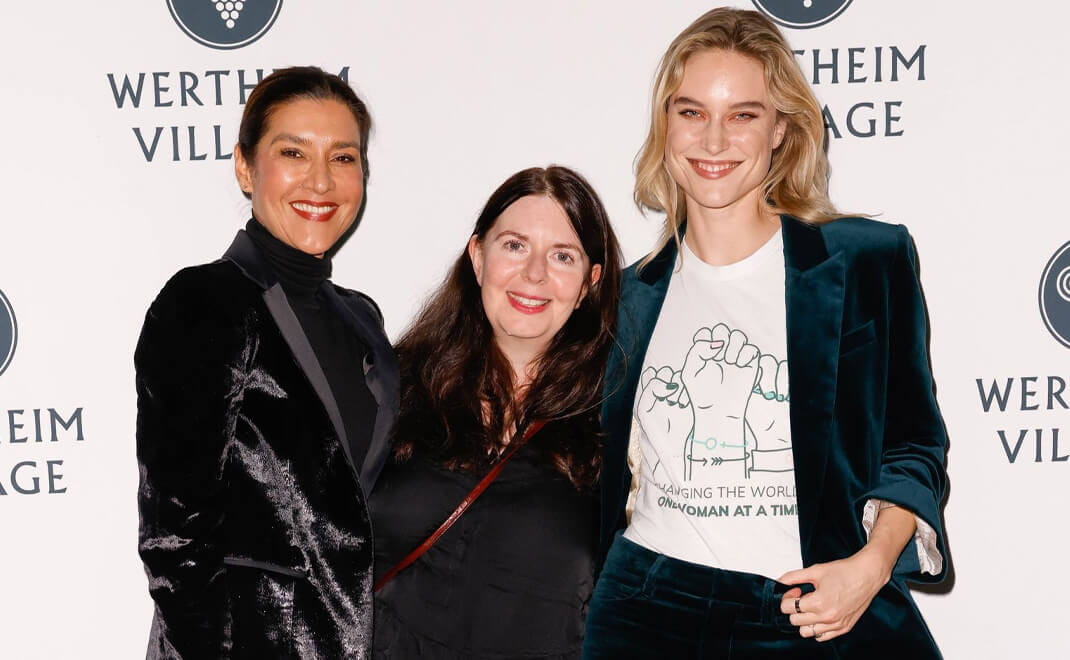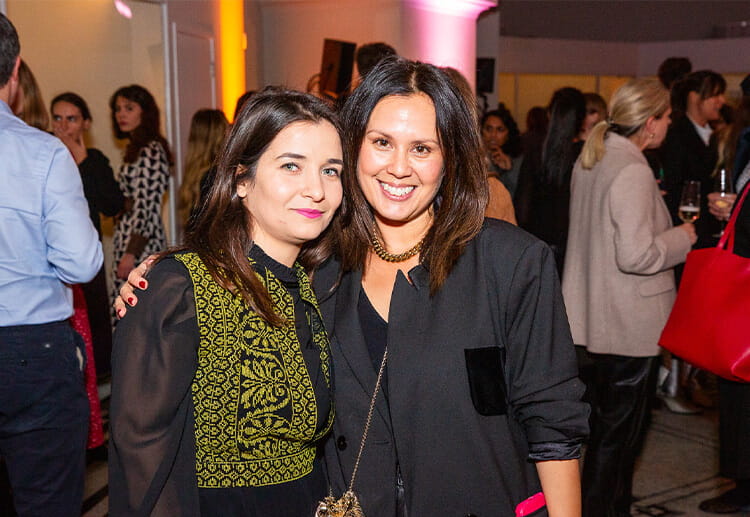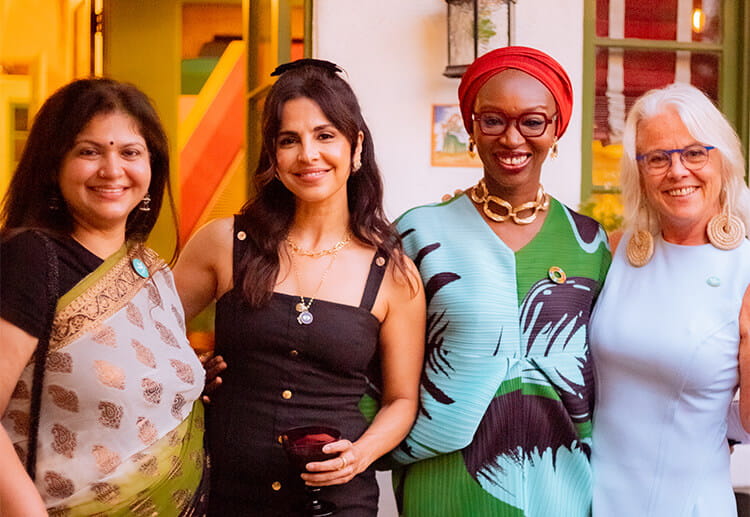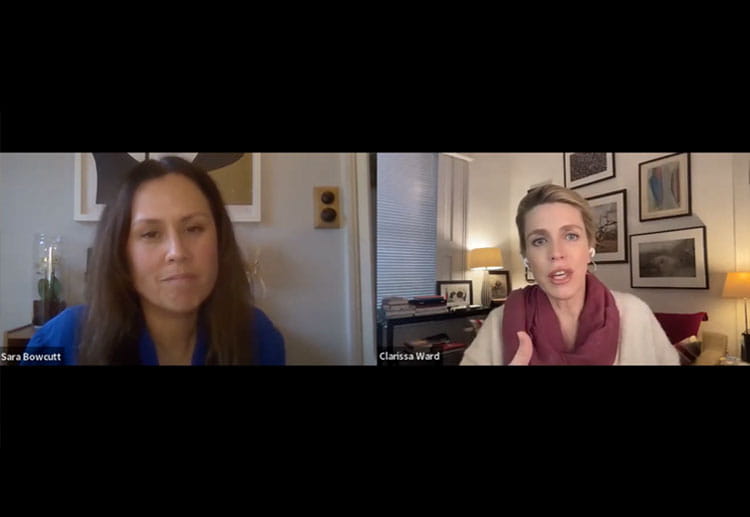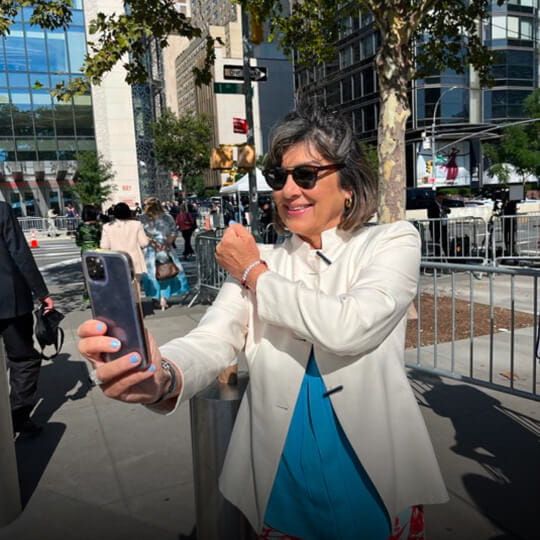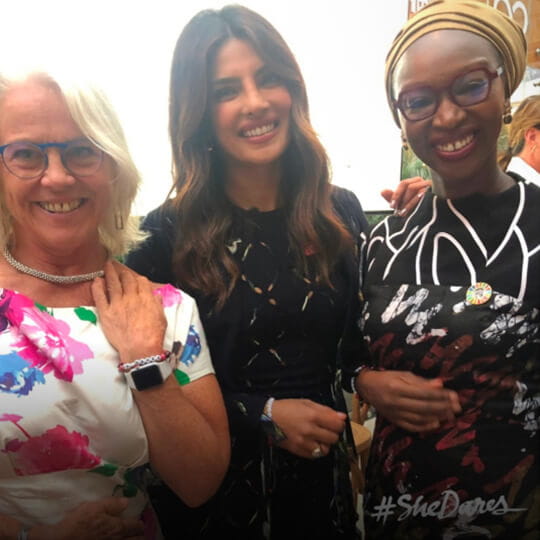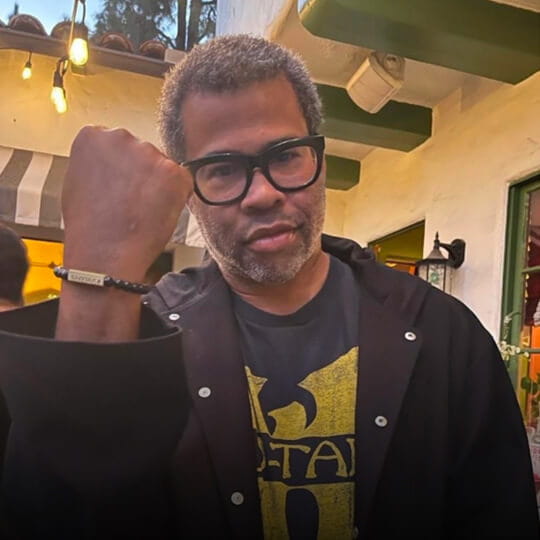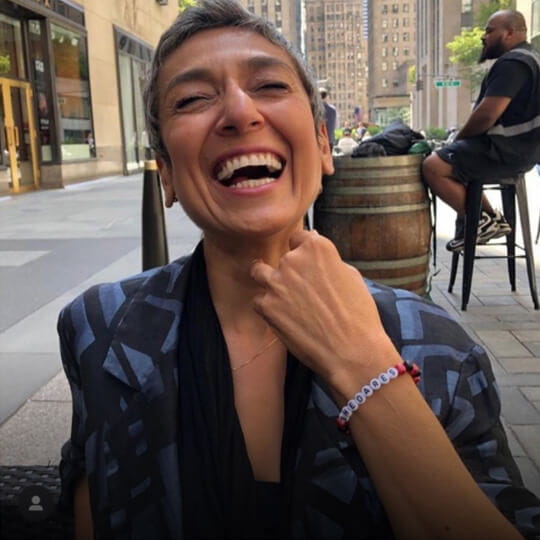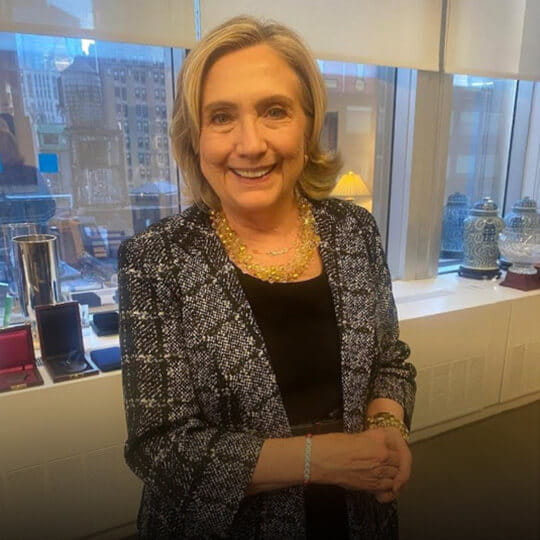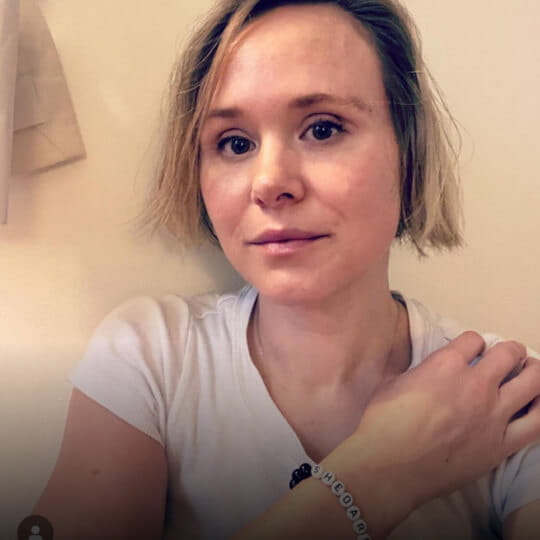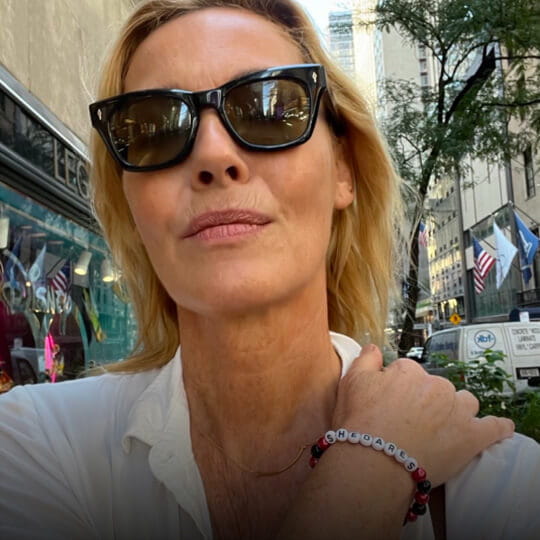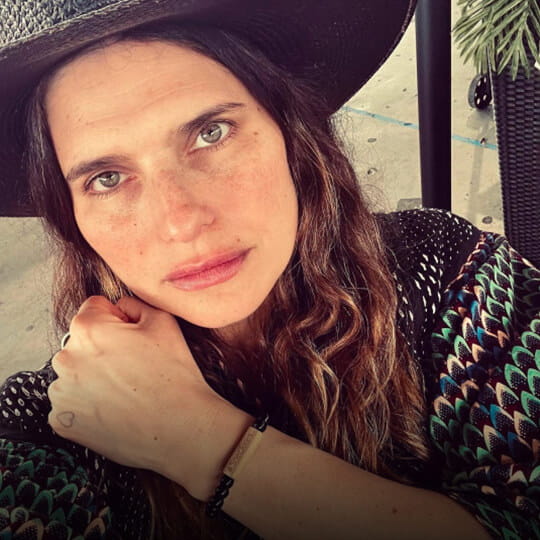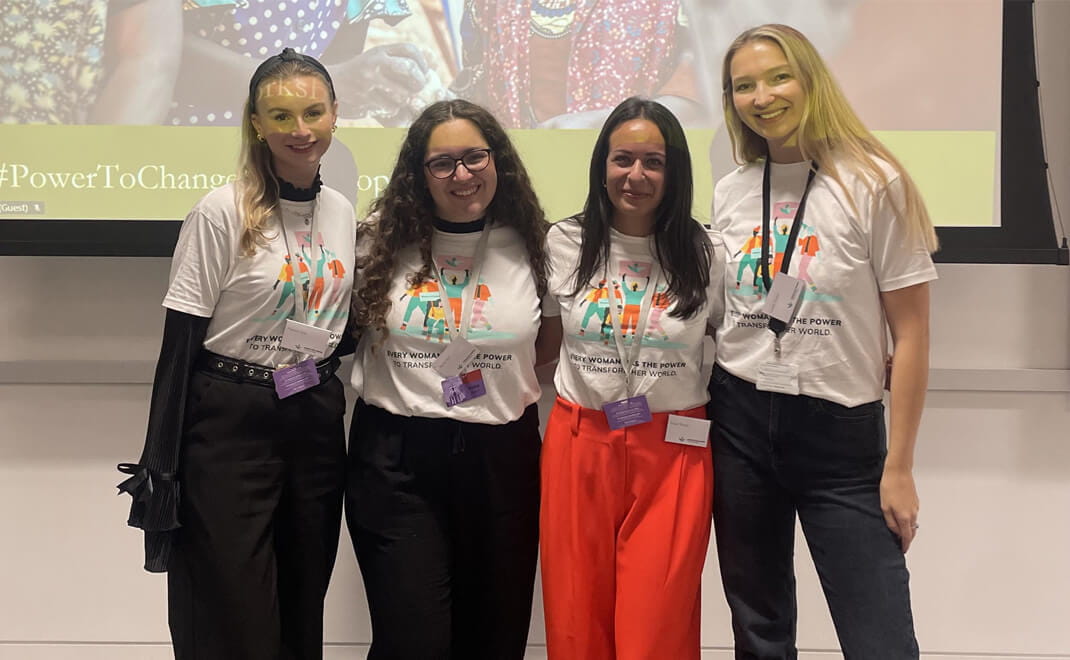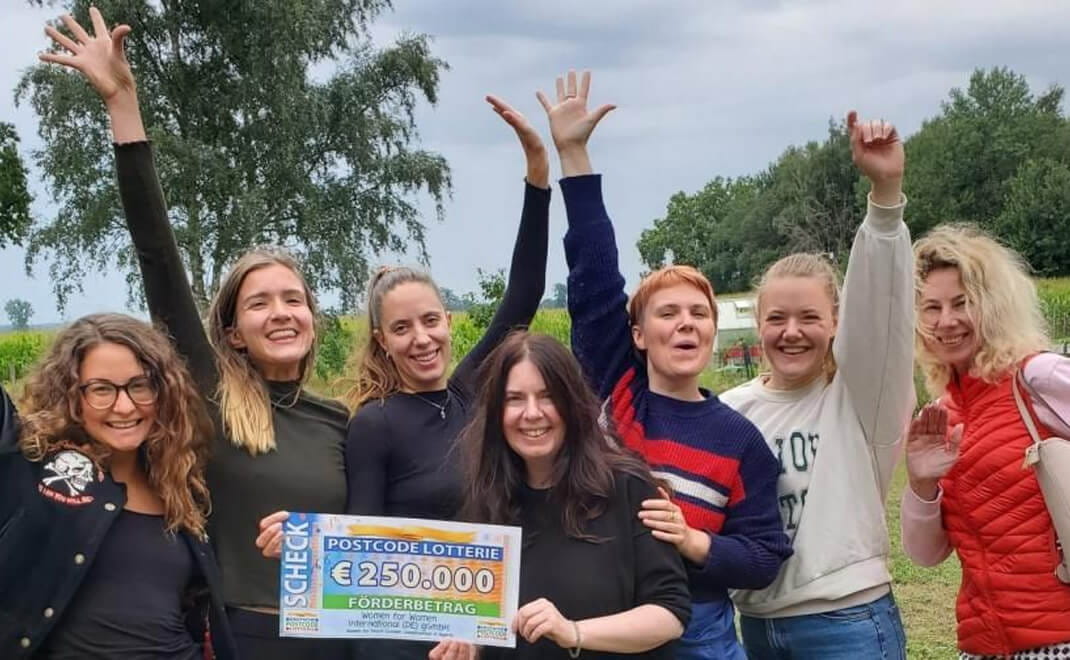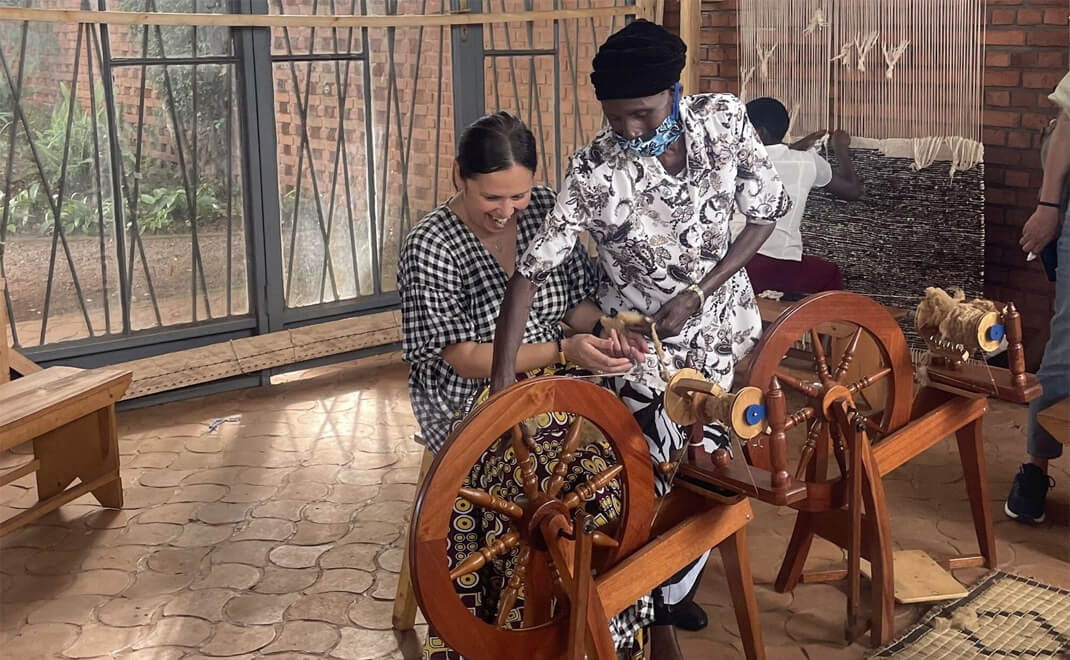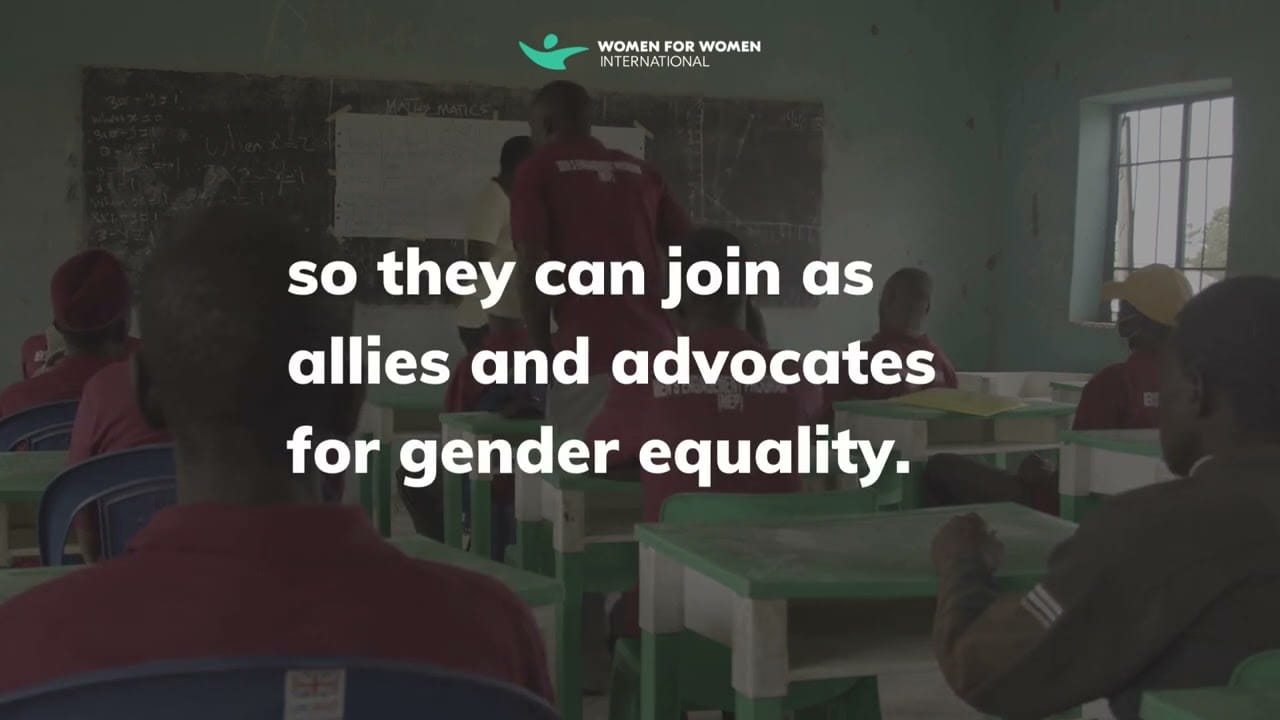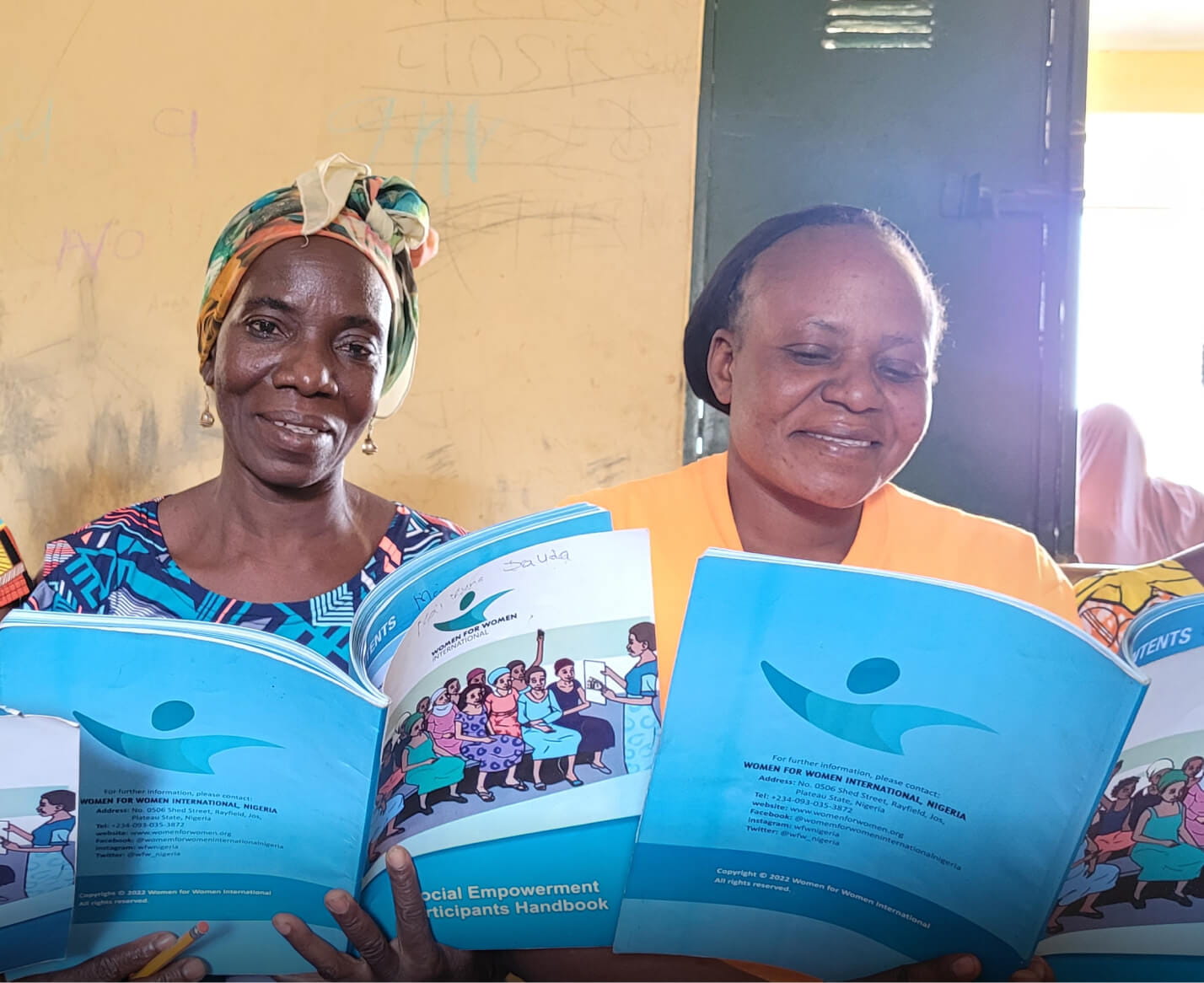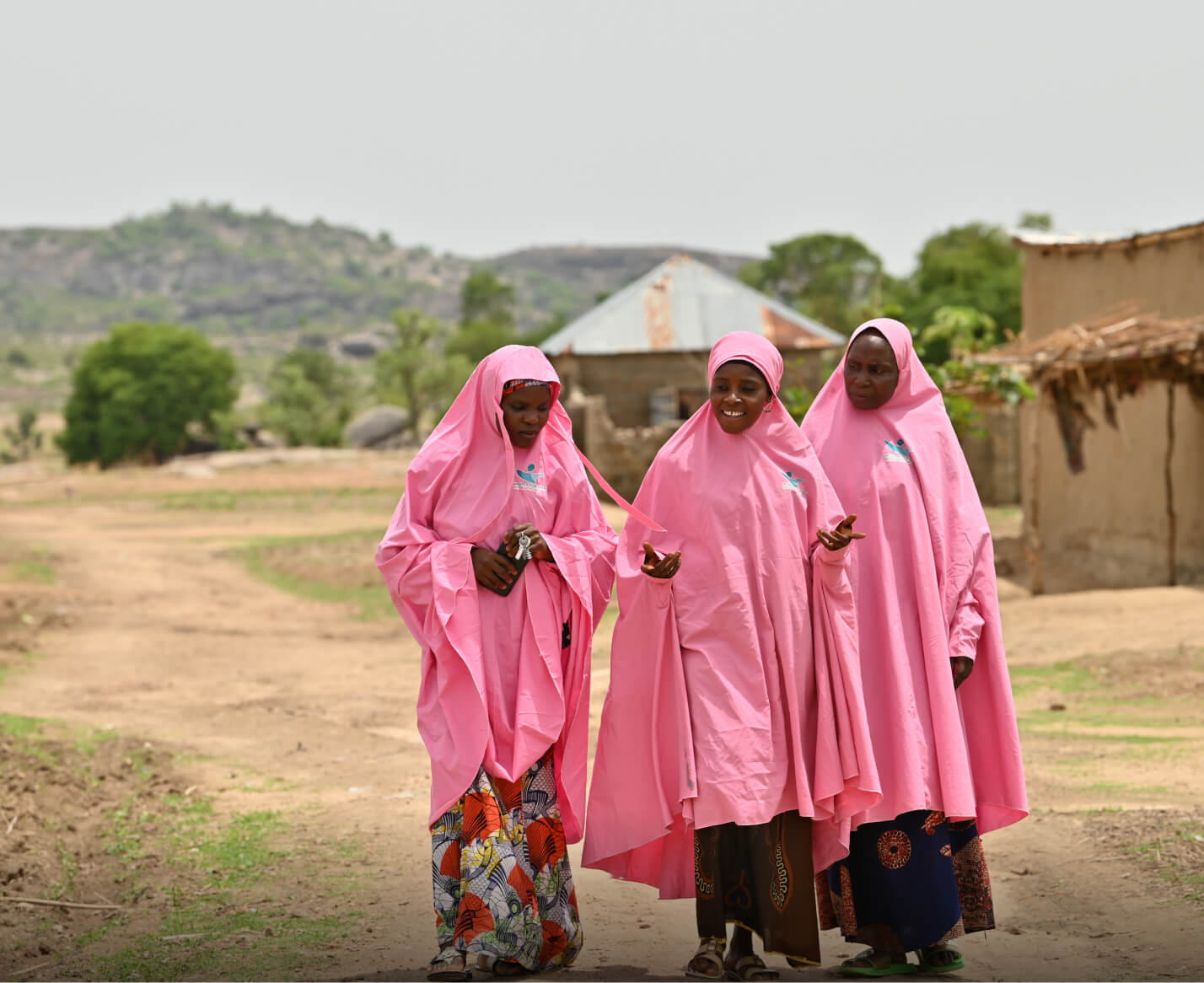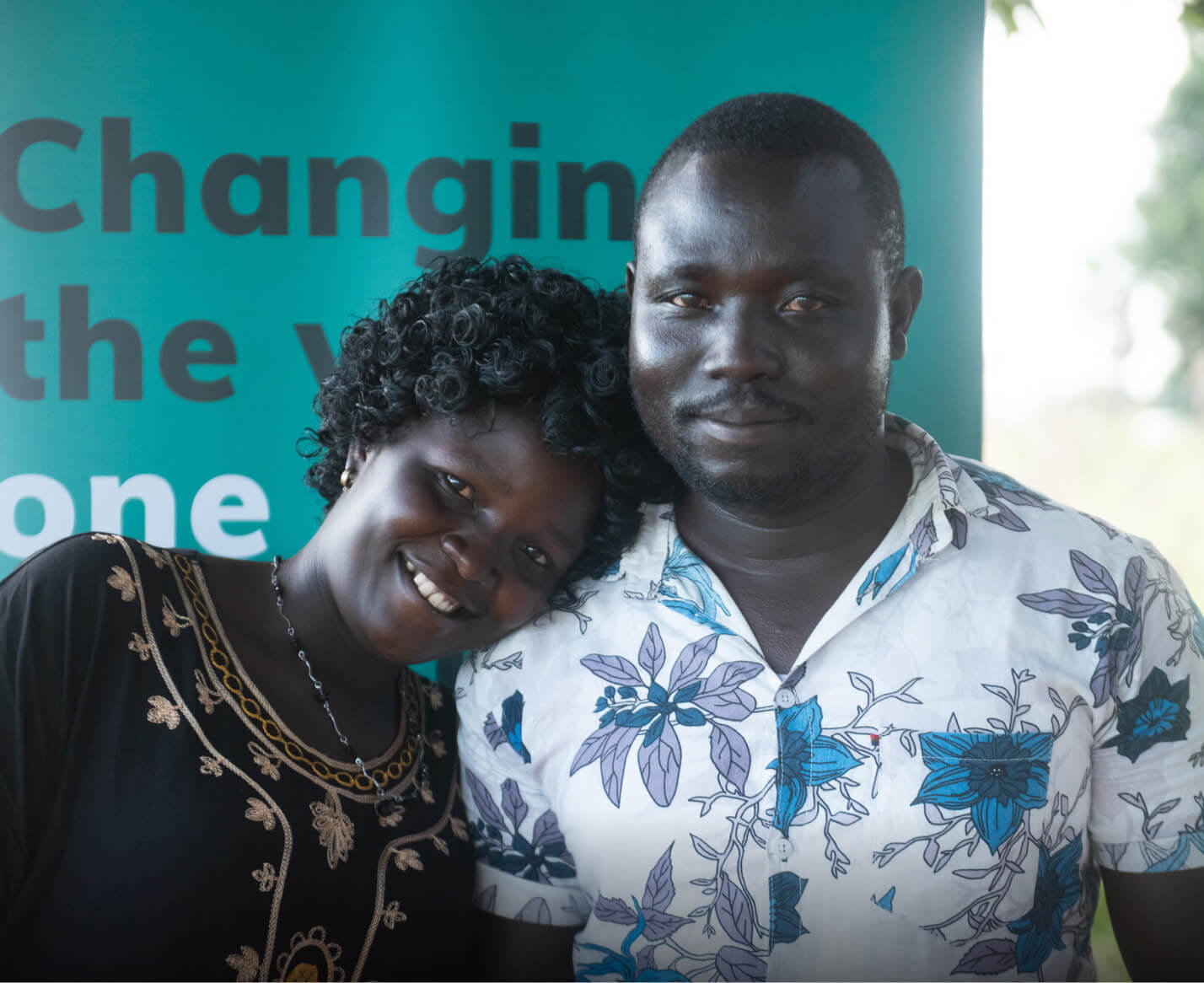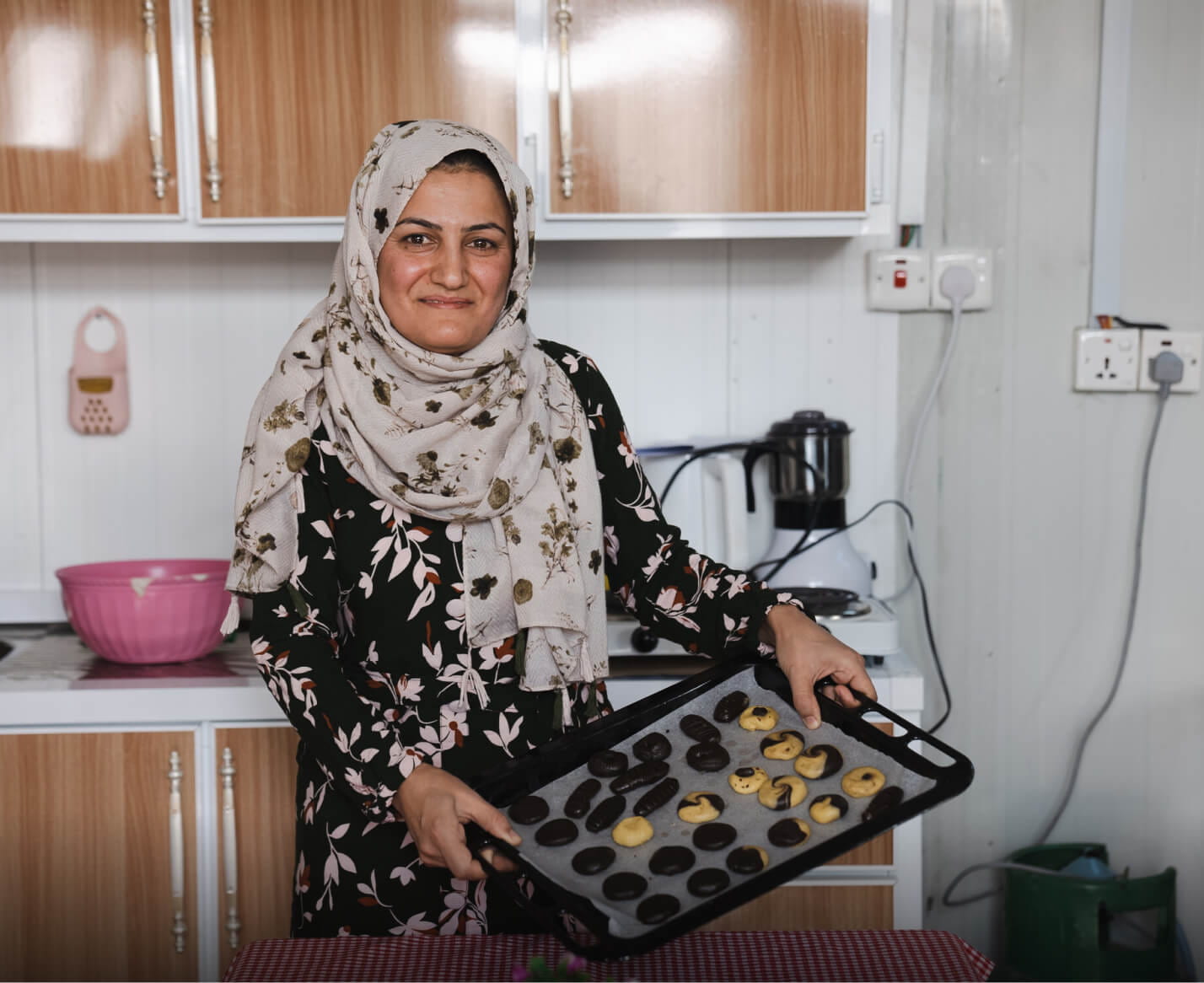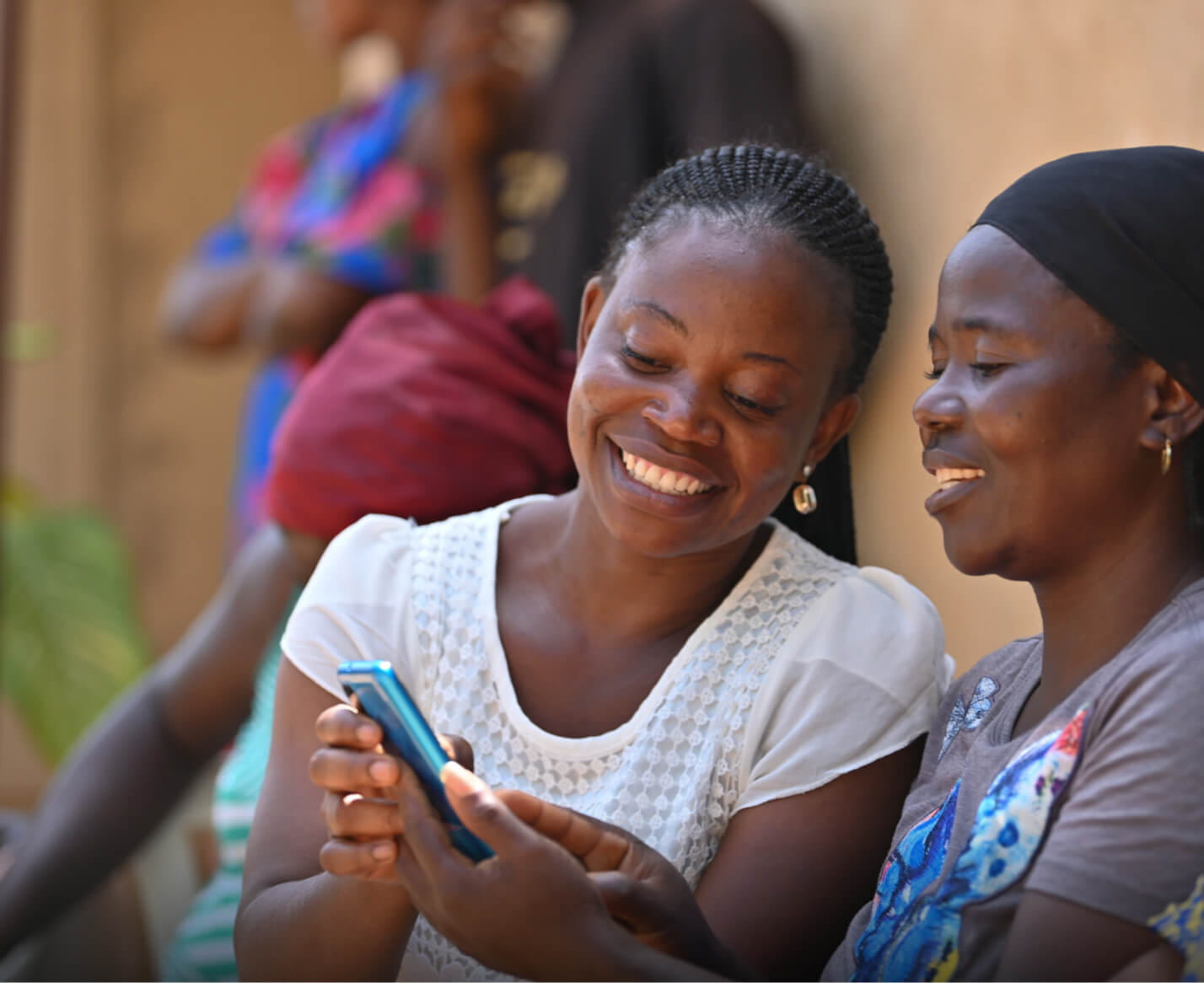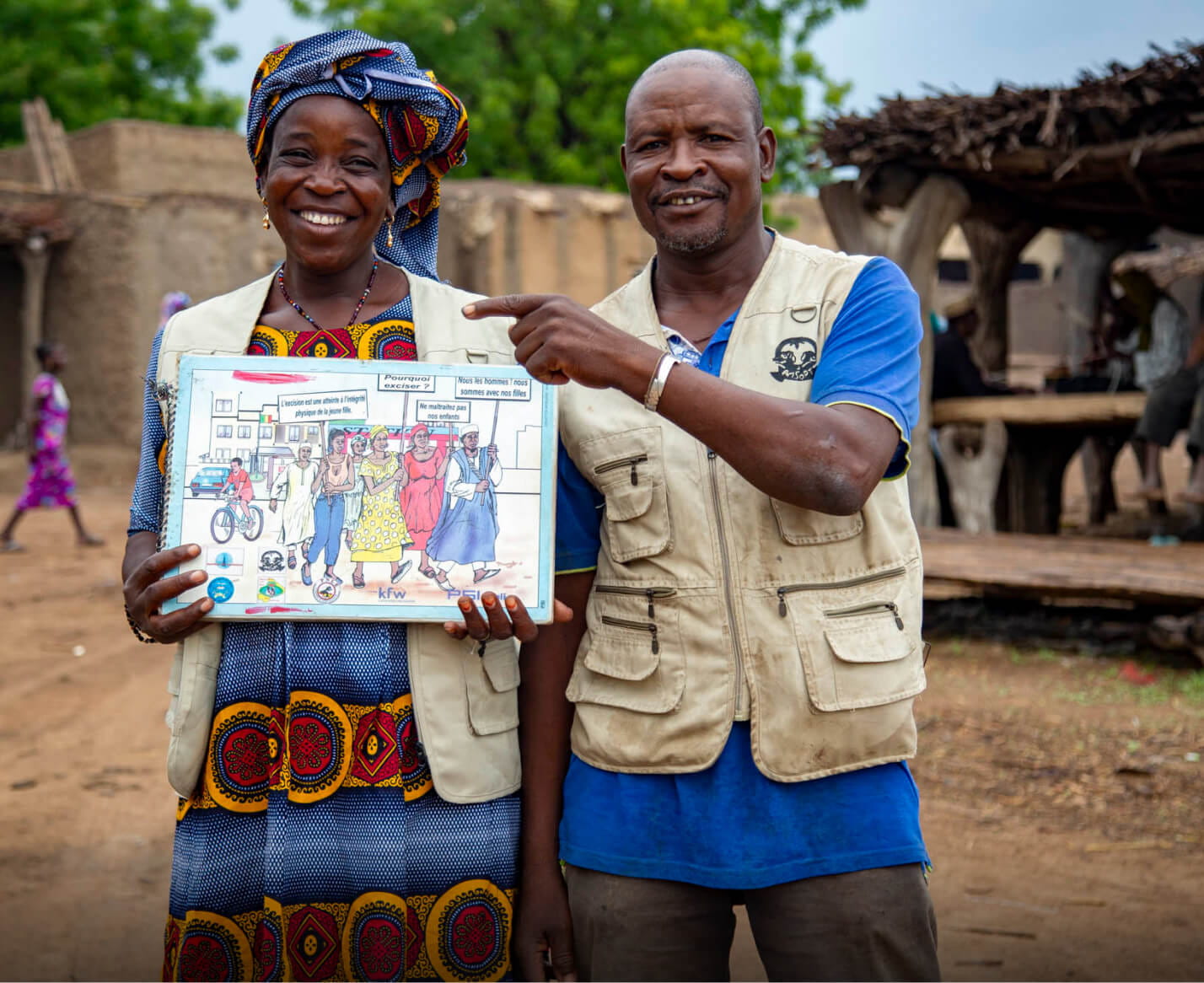Stronger Women, Stronger Nations, and Its Transformative Impact
Inspired by their graduation ceremony, where the Nigeria team had encouraged graduates to take their continued growth and learning from the Stronger Women, Stronger Nations (SWSN) Program into their own hands, a small group of graduates decided to carry
forward what they had learned to 200 women from two different communities in an informal SWSN Program, led by themselves.
When our Nigeria country office heard what the graduates were planning, our team of their decision, happily made themselves available to coach the new “trainers”, support them with copies of training materials and
remained on stand-by to talk about challenges as the training went on.
Fortunately, these 200 women graduated in 2023 with great results! The initiative of our graduates to share the training they received with so many additional women was the most rewarding compliment for our work
and the value of our SWSN program.
Advocating for Women Locally, Regionally and Globally
Women, Peace and Security (WPS):
Leading the change from the grassroots
We joined Women, Peace and Security week in October with five of our partners from the Resourcing Change consortium – all Women's Rights Organisations from Nigeria, South Sudan and Yemen. We hosted and attended events where their priorities were heard “This has been a good chance for us to say: yes, we are still in the field, we are still working and fighting and we will continue until women in our society have their rights.”
Demanding Action: Responding to New Strategies
2023 has been a significant year for policies and strategies impacting women’s rights in conflict. This has included the launch of the 5th National Action Plan for Women, Peace and Security and the International Women and Girls Strategy in the UK, the development of the
updated US Government’s Women, Peace and Security Strategy and the G7 Leaders’ Communique
following the Hiroshima Summit in Japan. Whilst we were involved in the consultation processes for these strategies, we found it disappointing that – in many cases - words have not been matched with more tangible political and financial
commitments. Read our calls to turn rhetoric into reality in our responses saved on our evidence page.
New Networks: Partnerships for Collective Action
Since joining the NGO Working Group on Women,
Peace & Security, we have engaged more actively with the United Nations, connecting our global teams and partners with UN agencies and member states. We also became a signatory to the WPS and Humanitarian Action Compact,
which has an impressive monitoring framework to which we will contribute our programme data and learnings, and are strengthening our partnership with the Gender is My
Agenda Campaign – sharing learnings from our Men’s Engagement Programme to influence work on positive masculinities at the African
Union level. In all cases, we work to bring local partners and women’s leaders themselves to the fore.
Advocating for Women Impacted by Climate, Conflict, and Gender Inequality
Around the world, climate crises and conflicts are on the rise, and it is women and girls who are uniquely and disproportionately impacted - but to develop meaningful, sustainable, and inclusive solutions, leaders
must listen to them.
We conducted an assessment, consulting nearly 1,000 women across 14 countries gathering their perspectives and experiences, bringing them to this year’s COP28 in Dubai for the first time, hosting a roundtable in partnership with
Goals House to bring the perspectives and experiences of women survivors of war and conflict. Our new report highlighted the effects of extreme weather, environmental degradation, poverty, violence and conflict on women’s lives.
Smashing the Patriarchy: Our Men’s Engagement Program
For the first time this year we were able to launch our MEP in Mosul, Iraq – a region once occupied by ISIS who subjected thousands of women to horrific sexual violence and brutally targeted Yazidis and other minority
groups. Our locally-led team implemented couples dialogue sessions to foster healthy communication, creating an enabling environment for women in a region steeped in patriarchal norms, political tension and
violence against women.
Meanwhile, in the Democratic Republic of the Congo (DRC) where a 6.9 million people have been
displaced
by conflict, we piloted the new MEP curriculum in South Kivu, which encourages men to take specific actions in their homes and communities to empower women or remove barriers to the realization of their rights. Inspired by women in a
Village Savings and Loan Association (VSLA) group, men enrolled in the MEP got together to buy better roofing materials for a woman with disabilities in their community, taking action to support vulnerable women
and actively participating in initiatives led by their wives, mothers, sisters, and family members.
Learning by
Continuously Adapting
-
Earnings and savings 69% of women report saving a portion of their earnings by the time they graduate, compared to 17% at enrollment, a more than four-fold increase.
-
Food security Globally, 36% fewer women report household food insecurity at graduation compared to enrollment. This is particularly impressive in a year of rising hunger and food insecurity
across each of our operating contexts.
-
Decision-making 84% of women report participating in household financial decisions by gradation, compared to just 40% at the beginning of the program.
-
Self-efficacy Women’s score on a scale measuring confidence and ability to reach goals increased by 149% from the start of the program to graduation.
Innovations to Help Adolescent Girls Realize Their Power
Though our signature ‘Stronger Women Stronger Nations’ Program serves women, the unfortunate reality is that many
teenage girls are thrust into the roles and responsibilities of womanhood and motherhood early. Decisions made during adolescence can lead to life-long impacts on girls’ development and futures. With this in
mind, we worked closely with our sister organization WfW Rwanda to develop a version of our standard SWSN adapted for the specific needs
of this age groups. WfWR is piloting the program to equip 16–17-year-olds, who have dropped out of school, with crucial life skills, business and vocational skills, and resources and knowledge to improve their
personal growth and economic well-being. The launch of this program is the culmination of two years of program design to cater to the specific needs of adolescent girls and the barriers they face, including
limited access to quality education, early or forced marriage and teenage pregnancies. It also required the development of relevant safeguarding mechanisms to ensure their safety.
A similar process of adapting the curriculum for use with girls in Nigeria, Iraq and Afghanistan in 2024 is underway, investing in the future of these young women so the next generation of women realize their power.
Adapting to Respond to New Crises
In 2023, more than six million people have been forcibly displaced since fighting began in Sudan in mid-April 2023. There have been brutal accounts
of sexual violence used as a weapon of war, exploitation and trafficking in the conflict, with women and girls who’ve been displaced particularly at risk. We immediately activated our
Conflict Response Fund, partnering with local organizations to provide emergency support for women survivors, including dignity kits and
psychosocial support.
Mali and Burkina Faso are facing escalating crises, driven by
political instability, increasing armed conflict, the climate crisis and high levels of poverty, millions have been displaced. The political, security, and economic challenges are anticipated to worsen in 2024,
with women continuing to struggle, facing higher levels of vulnerability.
In October 2023, we established partnerships with six new partners in Mali and Burkina Faso. Our partners are actively engaged in diverse activities with women, ranging from life skills training and the distribution of dignity kits to income generation
training and activities to address food insecurity. Additionally, they are supporting GBV survivors of violence to access vital medical, trauma counseling and psychological support while conducting community
awareness programs and strengthening protection systems.
In 2022, we began working with local partners in the West Bank, supporting Palestinian women to achieve social and economic independence.
But since October 7, 2023, and the latest escalation of the conflict in the region, the women we serve were facing an increasingly violent and uncertain future.
With your help, we worked with our local partners to meet the critical needs of women in the West Bank by providing hygiene kits, food vouchers, and trauma-informed counseling. With coaching, we were able to support women in lockdown to stretch their
finances and food supplies. Our partners provided lifelines for women across the West Bank and Gaza in the form of hotlines where trained psychologists were providing psycho-social 911.


 />
/>
